Discover Ephesus and Top Destinations in Western Turkey with an expert tour guide and a TripAdvisor Winner for 12 consecutive years.
Caduceus in Ephesus
We offer private tours of Ephesus and Pergamon. For more information, please contact us.
2 Comments
Private Full Day Biblical Ephesus Tours with Expert Local Tour GuidesJoin us on an extraordinary Ephesus Biblical Tour. Our expert Ephesus guide will guide you through the Biblical Significance of Ephesus. Ephesus is among the main biblical sites in Turkey. Explore the well-preserved Theater where the uprising against the Apostle Paul began, and pray in the House of Virgin Mary. Our Biblical Ephesus Tour offers an adventure that will touch your heart and soul. We also offer Biblical Ephesus Tours from Cruise Ships at Kusadasi Cruise Port. If you are looking for a tour that combines ancient history with biblical significance, the Ephesus Biblical Tour is for you! This fascinating tour will take you to the places that are mentioned in Chapter 19 of the Book of Acts. From the stunning Temple of Artemis to the impressive Grand Theater of Ephesus, you will walk in the footsteps of St. Paul, St. John and Virgin Mary. You will witness the rich religious and cultural heritage that Ephesus offers. An expert Ephesus guide will inform you with fascinating stories, bring scripture to life, and provide context to the biblical narrative. So, get ready for a journey of discovery and enlightenment as you embark on this unforgettable tour of Biblical Ephesus! What happened in Ephesus in the Bible? Ephesus was an important city in the early Christian period. Ephesus is located in modern-day Turkey. It was a wealthy commercial city and was famous for its Temple of Artemis. The city was the capital of the Asia Province of the Roman Empire and a center of trade and worship that attracted many people from different cultures and faiths. Ephesus is mentioned in the Chapter 19 of the Book of Acts. St. Paul spent 2.5 years establishing a Christian community in Ephesus. But Paul's teachings about Christ concerned the merchants in the Temple of Artemis. In 56 AD, a riot was started in the Ephesus Grand Theater by local silversmith Demetrius. For the faithful travelers who are interested to know the biblical history of Ephesus, we offer private Full Day Biblical Ephesus Tours with expert local tour guides. Ephesus has a major importance in biblical history. Numerous names mentioned in the New Testament lived in Ephesus such as: St. Paul, St. John, Timothy, Epaphras, Demetrius the silversmith, possibly Virgin Mary... and many more. During the tour you will be taken to the Biblical Highlights of the area such as Ancient City of Ephesus, The Grand Theater of Ephesus, Basilica of St. John, Temple of Artemis, House of Virgin Mary, Church of Mary in Ephesus ... We offer Private Full Day Biblical Ephesus Tours from Full Day Biblical Tour Itinerary:After reaching Selcuk. Your first stop on this fascinating Biblical Ephesus Tour is at the House of Virgin Mary where Virgin Mary is believed to spent hear last 9 years. Afterwards, you will continue on to visit ancient city of Ephesus, one of the most magnificent and best-preserved ancient sites in the world. See the Odeon, the Market Basilica, Curetes Street, Bath, Celsus Library, Marble Street and visit the Great Theater of Ephesus where a mentioned in Acts Chapter 19 where a riot started against St. Paul by the merchants of Ephesus. The Grand Theater of Ephesus had a seating capacity of 25,000 people. Enjoy a traditional Turkish Lunch. After lunch visit the Basilica of St. John and see the Temple of Artemis, one of the wonders of the ancient world. (At House of Virgin Mary, Holy Mass is held every day, from Monday to Saturday at 5:15 pm (November to March) and 6:15 pm (April to October). The Sunday Mass is held at 10:30 am. Our guests have the option to attend the Holy Mass.) Private Ephesus Tours from Alacati and Cesme
Private Ephesus Tours from Alacati, Cesme Hotels and Cesme Cruise Port with licensed tour guides.
Alacati gained great importance in history because of its secure port. Alacati Port is one of the safest ports in the south of Cesme Peninsula. The history of Alacati dates back to 3000BC. Alacatı started to develop at the beginning of 1800's. At the beginning of the 1800s, the phylloxera disease hit the vineyards in Europe and made all the vineyards inefficient. Alacati benefited from this. After 1830, disease-free, quality grapes and wines, which grow on fertile soil of the region, are opened to the world from Alacati Port. The most important factor in the development of the economy of Alacati at that time was wine production and olive oil production.
Ephesus Day Trip from Alacati and Cesme
Ephesus is the highlight of Western Region of Turkey. It is a must see site for all travellers visiting Alacati. We offer private tours of Ephesus for travellers who stay in Alacati, Cesme Hotels and cruise ship passengers calling to Cesme Cruise Port. These private tours can start from Alacati or Cesme and end inIzmir Airport or start from Izmir airport and end in Alacati/Cesme or start and end in Alacati. Kindly note that Ephesus is 2 hours drive from Alacati/Cesme.
Private Tour of Ephesus starting from Alacati or Cesme ending in Izmir Airport or your hotel in Alacati or Cesme or Cesme Cruise Port.
Temple of Artemis, Ephesus, House of Mary (8 hours)
After meeting your driver, start your journey from Cesme or Alacati to Ephesus. Drive through the fertile lands. After 2 hours drive, meet your Ephesus private guide in Selcuk. Your first stop will be the Temple of Artemis, one of the 7 wonders of the ancient world. Afterwards proceed to the mountain where Virgin Mary is believed to spent her last 9 years. The house is approximately 1000 feet above sea level and running as an active chapel. Roman Catholics believe that Virgin Mary came to Ephesus with Saint John 5 years after the crucification. At the age of 63 she is assumed to heaven. Although there is no fact that Virgin Mary lived here approximately 1.5 million people visit the site each year. After 30 minutes visit to the House of Mary, drive to ancient city of Ephesus. You will be dropped at the upper gate of Ephesus with your tour guide. Start your Ephesus walking tour. You will be walking down the hill approximately 1.5hrs. You will see the Odeon, the basilica, domitian square, fountain of Trajan, Celcus library, Terrace Houses (optional), Marble street, the Grand Theater of Ephesus and the Harbour Street. You will be endng your tour at the bottom gate. Your driver and tour guide will take you toIzmir Airport or your hotel in Alacati or Cesme at the end of the tour.
* %20 discount is offered on certain dates. Click the following link to check out the discounted dates: Discounted tour dates for Private Ephesus Tours
Rates Cover:
- Services of an excellent English speaking tour guide - A/C MPV. - All transportation costs. - Tax, service charges - Traditional Turkish Lunch - Pick up and drop off as indicated. - Parking fees to the sites. Rates Do Not Cover: - Entrance fees to the sites. - Drinks during lunch
Important Notice:
There is no prepayment required for the reservation. To avoid disappointment, we recommend to make your private Ephesus tour reservation at earliest possible. Payment Terms: Payment can be made in Euro, Turkish Liras or US Dollar cash at the end of the tour. There is no prepayment required for the booking. Excursiones Privadas de Efeso para pasajeros de Cruceros Royal CaribbeanKusadasi es un puerto muy popular de la convocatoria de Cruceros Royal Caribbean. Varios Royal Caribbean Cruise buques atracan en el puerto de Kusadasi, tales como: Odyssey of the Seas, Rhapsody of the Seas, Enchantment of the Seas, Odyssey of the Seas llamará a puerto de Kusadasi durante 7 noches de Crucero Mediterráneo.
Ofrecemos excursiones privados de Éfeso para los pasajeros de Royal Caribbean que hacen escala en el puerto de Kusadasi. Un guía turístico de habla hispana dirige este recorrido privado. Un número limitado de guías turísticos españoles están disponibles en este puerto; Reserve con anticipación para evitar decepciones. Desde el puerto de Kusadasi, es un viaje de 25 minutos en su vehículo privado hasta las notables ruinas de Éfeso, perfectamente conservadas. En una visita guiada a pie, aprenderá sobre la historia y las excavaciones que han descubierto esta ciudad notablemente intacta. Obtenga una visión de la vida de los antiguos romanos mientras descubre baños, teatros, templos, mercados y las enormes ágoras. El recorrido requiere una cantidad significativa de caminata. Use zapatos cómodos para caminar. La sombra es limitada; para evitar las quemaduras solares, use ropa ligera y larga adecuada para cubrirse. Llevar gorra y gafas de sol. Estamos orgullosos de anunciar que ofrecemos tours privados exclusivos para los pasajeros de Royal Caribbean desde el Puerto de Kusadasi. Para obtener más información y programas turísticos recomendados por favor haga clic: Excursión Éfeso Español o póngase en contacto con nosotros. Private Ephesus Tours from Izmir Cruise PortWe offer private Ephesus Tours starting and ending at the Port of Izmir for cruise ship passengers. There are many cruise ships calling to the Port of Izmir such as Costa Diadema of Costa Cruises, Nautica of Oceania Cruises, Carnival Pride of Carnival Cruises and Sebourn Encore of Seabourn. We offer private Ephesus Tours starting and ending at the Port of Izmir for cruise ship passengers. There are many cruise ships calling to the Port of Izmir such as Costa Diadema of Costa Cruises, Nautica of Oceania Cruises, Carnival Pride of Carnival Cruises and Sebourn Encore of Seabourn. The main highlight of the area is the ancient city of Ephesus and for the Roman Catholics: House of Virgin Mary. All of our private tours are conducted with licensed local tour guides and luxury vehicles driven by professional drivers. After meeting our guests at the Port of Izmir, we drive 1 hour south to Selcuk town which is the modern name for Ephesus. On the way to Ephesus your tour guide gives you a brief info about the area and about Turkey. As you arrive in the ancient city of Ephesus, an important center for early Christianity. In the Book of Revelation, Ephesus was one of the seven churches addressed by Christ in a vision. You will first see the remains of Magnesia Gate, once a marvelous example of ancient architecture that stood tall as an entrance to the city of Ephesus. Walk downhill with your tour guide through the ruins of Ephesus. Visit Odeon, Celsus Library, Temple of Hadrian, Fountain of Trajan and Grand Theater. The Grand theater of Ephesus, one of the city’s best-preserved structures, Once had seating capacity of 24,000 people, and according to some historians the site where Saint Paul preached, your tour guide will take you the best spots to take pictures of these fantastic ruins. For more information. contact us. Efes Antik Kenti ve Çevresi Tur Rehberi Hizmetleri
Efes Antik Kenti ve çevresinde, yerli ve yabancı konuklara tur rehberi hizmetleri vermekteyiz. Hizmetlerimiz Kültür ve Turizm Bakanlığı tarafından kokartlı profesyonel turist rehberleri tarafından sağlanmaktadır. Türkçe ve İngilizce dillerini son derece iyi konuşan tecrübeli rehberlerimiz sizlerin ve misafirlerinizin memnuniyeti için hep yanınızda olacaktır. Tur sırasında tarihsel bilgilerin dişinda rehberlerimiz, Efes Antik Kenti ve çevre bölgenin yaşam kültürünü, geleneklerini, sosyolojik yapısını, politikası konusunda da bilgi verecektir.
Efes Antik Kenti, Türkiye'nin en iyi kazılmış ve en büyük arkeolojik parkıdır. 2015 yılından beri UNESCO dünya mirası listesinde yer almaktadır. İzmir şehir merkezine 65 km uzaklıkta bulunan Selçuk ilçesi sınırları içerisinde yer almaktadır. Kuşadası'na 18 km uzaklıktadır. Kleopatra, Mark Anthony, Augustus, Aziz Pavlus, Meryem Ana ve Havari Yuhanna gibi birçok önemli isme ev sahipliği yapan efsanevi bir şehirdir. 200,000 kişilik nufusuyla, Roma İmparatorluğu'nun zirvesindeki en büyük dört şehirden biri olmuştur. Her yıl 2 milyondan fazla kişi tarafından ziyaret edilmektedir. Türkiye'nin en önemli seyahat destinasyonlarından biridir. Gezginler için mutlaka görülmesi gereken bir yerdir. Bu kadar önemli bir arkeolojik şehri profesyonel bir tur rehberi eşliğinde gezmenizi tavsiye ederiz.
Efes Antik Kenti Tarihi
Efes'in kuruluşu MÖ 6000 olan Neolotik döneme dayanmaktadır. Arkeologlar, bugün Artemis Tapınağı'nın bulunduğu Hitit Dönemi'nde yerleşim olduğunu ortaya çıkardılar. Şehir, Arzawa Krallığı'nın başkenti olan Apasas olarak adlandırıldı.
Bazı kaynaklar şehrin Amazonlar tarafından MÖ 3. binyılda kurulduğunu söylüyor. Bu küçük yerleşim yerinin sakinleri Amazonlar, Karyalılar, Leleglerdi. Amazonlar, Anadolu'da yaşayan bir kadın savaşçı ırkıydı. Homeros'un İlyada ve Odyseey destanlarında Amozonlardan bahsettiğini görüyoruz. Odyssey Destanı'na göre, Amazonlar Truva Savaşı'nda Truva atları ile Miken ve Spartalılara karşı savaştı. O sırada kraliçeleri, son Troy filminde Brad Pitt olan Aka kahramanı Achilles tarafından öldürüldü. Efsaneye göre Amazonlar, erkekleri sevmeyen, ancak doğurganlık nedenleriyle erkekleri kullanan kadın savaşçılardı. Ok atma konusunda çok iyiydiler ve daha hizli ok atabilmek için, sağ göğüslerini keserlerdi. Kaynaklar, "Ephesos" un Apasas adlı başarılı bir Amazon kraliçesinin adından geldiğini söyler. Bilindiği gibi bugün Güney Amerika'da Amazon nehri var. 16. yüzyılda bir İspanyol Asker, Homeros Destanlarında bahsedilenlere benzer şekilde yağmur ormanları arasında nehir kenarında benzer kadın savaşçıları görünce onlara Amazon ismini verir. MÖ 11. yüzyılda, Kuzey Makedonya'dan gelen Dor işgalcileri, Yunanistan anakarasına göç ettiler ve göç etmek için sakinleri kovdular. Azınlıklar arasında İyonyalılar, Aiolyalılar ve bazı Dorlar Batı Anadolu'ya göç etti. Aiolialılar, Smyrna'nın kuzeyine gitti. İyonyalılar burada Efes ve çevresindeydiler. Herodotos "En iyi hava İyonya'da. Aiolia'nın toprakları çok bereketli ama hava durumu değil" der. Ephesos, Miletos, Priene, Kolophon, Priene, Teos, Samos, Myus, Chios, Phokaia, Erytraí, Lebedor isimli 12 yeni şehir devleti kurdular. Dorlar güneye gitti ve Karyalılar tarafından asimile edildi. Efes önemli bir liman kenti oldu. MÖ 6. yüzyılda. Şehir, bugün Artemis Tapınağı'nın bulunduğu yere kadar uzanıyordu. Bugün bu bölgeye Ayasoluk deniyor. Adı "Hagios Theologos" kelimesinden türemiştir Efsaneye göre bu göçe Atina Kralı Kodros'un oğlu Androklos liderlik etmiştir. Samos Adası'nı fethettikten sonra bu bölgeye geldi. O sırada bir şehir kurmak için Tanrılar'dan izin alınması gerekiyordu. Androklos, kahinlere şehri nerede kuracaklarını sormak için Delphi'ye, Apollon Tapınağı'na yelken açtı. Kahinler, "Bir domuz ve bir balık size rehberlik edecek ve şehrin kurulması gereken yeri işaretleyecek" dedi. Bu, Androklos'a bir yaban domuzu ile bir balığın buluşması için pek mantıklı gelmedi. Bir gün mangal sırasında. Bir balık, üzerine yanan bir kömür yapışmış halde ızgaradan fırladı ve yangına neden oldu. Bu yangın yakınlarda bir yaban domuzunu korkuttu ve Androkos yaban domuzunu avladı ve yaban domuzunun öldürüldüğü yerde şehri kurmaya karar verdi. Efes, MÖ 4. yüzyıla kadar Lidya ve Pers egemenliği altındaydı. Daha sonra ünlü Komutan Büyük İskender şehri Perslerden kurtarmıştır. Ölümünden sonra, generallerinden ve haleflerinden Lysimachos şehri yönetti. Onun zamanında: Kaystros nehrinin taşıdığı alüvyon çökelleri limanı doldurdu ve sürekli yükselen deniz seviyesi eski yerleşimi sular altında bırakarak limanı kullanılmaz hale getirdi. Limanın elverişsiz durumu ticareti etkiledi. Efes alçak bir zeminde bulunuyordu ve tamamen denizin suları altında kalmıştı. Spor salonları, stadyumlar, çeşmeler gibi zenginleştirilmiş yeni bir yerleşim yeri ... Lysimachos tarafından emredildi. Yeni kent arayışının nedenleri, yer altı suyu seviyesinin yükselmesi ve alüvyon nedeniyle yeni bir limanın gerekliliğiydi. Sakinleri bugün bulunduğu yeni şehre taşındılar; Preon ve Pion iki tepe arasında. Yeni şehir, Miletli Hypodomos'un belirlediği ızgara planını uyguladı. Sokaklar dik açılarla kesişiyor. Caddeler ve sokaklar havadan bakıldığında bir satranç tahtası gibi görünür. Efes, Artemis Tapınağı (Diana) ile ün kazandı. Artemis kültü ve ünlü tapınağı Efes'e büyük bir insan kalabalığını çekmiştir. Artemis Tapınağı, antik dünyanın 7 harikasından biri olarak kabul edilir. Anadolu ayrıca, Karya kenti Halikarnasus'ta Efes'ten 170km uzaklıkta bulunan bir başka harikaya da ev sahipliği yapar. "Kral Mosolos Anıt Mezarı" MÖ 2. yüzyılda Efes, Romalılara karşı Suriye kralı Antiochus'un yanında yer aldı. Efes'in 100km kuzeyindeki Magnesia'daki (Manisa) yenilginin ardından. Efes, Roma'nın müttefiki olan Bergama Kralı'nın yönetimine girdi. Son Bergama Kralının ölümünden sonra bir Roma şehri oldu. Roma İmparatoru Antonius Pius döneminde şehir, "Asya'nın ilk ve en büyük metropolü" unvanını taşıyordu. Efes'in altın çağı, Helenistik ve Roma dönemlerindeydi. Küçük Asya'nın en büyük metropolü olan İyonya'nın mücevheri olan Efes'ín nufusu 200.000 vatandaş ve 25.000 köleden (MS 2. yüzyıl) oluşuyordu. Artemis'in onuruna verilen bayram günlerinde nüfus üç katına çıktı. Şehir, MS 1. yüzyılda Roma İmparatoru Augustus döneminde Asya Eyaletinin başkenti oldu. Bu süre zarfında Efes, bir Sanat ve Kültür merkezi ve Felsefe için bir buluşma yeri oldu. Efes'li ünlü filozof, MÖ 4. yüzyılda yaşamış olan Heraclitus'tur. MS 2. yüzyılda birçok mermer yapı inşa edildi ve sokaklar mermer heykellerle süslendi. Şehir, 4 ana su kemeri de dahil olmak üzere şehrin farklı bölgelerine hizmet veren çeşitli boyutlarda çok sayıda su kemeriyle antik dünyadaki en gelişmiş su kemeri ve kanalizasyon sistemlerinden birine sahipti. Bu gelişmiş su kemeri sistemi saniyede 120 lt su sağlamak için kullanılıyordu. MS 263 yılında Gotlar tarafından yağmalanmasına rağmen Efes, 5. ve 6. yüzyıllarda Konstantinopolis'ten sonra Bizans İmparatorluğunun en önemli şehirlerinden biri olarak kaldı. Bununla birlikte, MS 8. yüzyılda Araplar tarafından yapılan diğer yıkımlar hızlı bir düşüşe neden oldu: Şehir tarihi boyunca tekrarlanan depremlerle birçok kere yıkıldı ve Küçük Menderes nehri tarafından şehir limanı çamurla doldu. 7. yüzyıl sonunda şehir, büyük ölçüde terk edildi. 11. yüzyılda Selçuklu Türkleri fethettiğinde küçük bir köydü Efes. Bizanslılar 1100 yılında yeniden kontrol altına aldılar ve 13. yüzyılın sonuna kadar bölgenin kontrolünü ellerinde tuttular. Bizans döneminde, başlıca yerleşim yeri ilk sıralarda Ayasoluk (Hagios Theologos) Tepesi'nde bulunuyordu. Bir Türk beyliği olan Aydınoğulları, 14. yüzyılda şehri fethetti. 16. yüzyıldan itibaren şehir önemini yitirmiş ve Osmanlı Devleti tarafından yönetilmiştir.
Efes Antik Kenti Turu
Siz sadece nasıl bir gezi hayal ettiğinizi anlatın, biz kişiye ve/veya gruba özel rehber hizmetlerimiz ile yanınızdayız. Turlarımızı; İngilizce ve Türkçe dillerini son derece iyi konuşan ve Turizm Bakanlığından kokartlı, TUREB (Turist Rehberleri Birliğine) üye rehberlerimiz eşliğinde düzenliyoruz. Tur süresince konuklarımızın keyifli zaman geçirmelerine, gezilen ve ziyaret edilen yerler hakkında doğru bilgilenmelerine önem gösteriyoruz. Efes Antik Kenti rehber ücreti Turist rehberlği ücretlerı Türkiye Cumhuriyetı Kültür ve Turizm Bakanlığı tarafından belirlenir. Rehberlerin taban ücretten daha düşük ücret alması mevzuata aykırıdır ve cezai yaptırımı bulunmaktadır. 2024 yılı için belirlenmiş Turist Rehberliği Günlük Tur Taban Ücreti: 3081TL dir, Selçuk ilcesinde, Efes Antik kenti haricinde gezilebilecek diğer yerler:
TC Vatandaşı olmayalar ıçin Efes antik kentine giriş ücreti kişi başı 700TL'dir. Efes antik kenti içerisinde yer alan yamaç evler bu fiyatın dışında kalmaktadır.
Müzekartınızla Efes Antik Kenti haricinde, St. Jean Bazilikası ve Efes Arkeoloji Müzesi de ücretsiz ziyaret edilebilir. Müzekart Meryemana'da geçmemektedir. Meryemana giriş ücreti Türk vatandaşları için 20TL, yabancılar için 60TL dir. Efes antik kenti
* 6326 sayılı Profesyonel Turist Rehberliği Meslek Kanunu uyarınca Türkiye Seyahat Acentaları Birliği (TÜRSAB) üyesi Acentaların düzenledikleri tur,transfer,günübirlik şehir turu,paket tur,gece turu şekliyle müşterilerine sundukları hizmetlerde gerekli şartları taşıyıp kendisini adına Türkiye Cumhuriyeti Kültür ve Turizm Bakanlığı tarafından hazırlanan Profesyonel Turist Rehberliği Ruhsatnamesi ve Eylemli Çalışma Kartı'na sahip Profesyonel Turist Rehberi bulundurmaları gerekmektedir. Eğer bir kişi ad altında olursa olsun Profesyonel Turist Rehberliği Ruhsatnamesi ve Eylemli Çalışma Kartı olmadan Turist Rehberliği Hizmeti veriyorsa bu söz konusu yasaya göre suçtur. 6326 sayılı Profesyonel Turist Rehberliği Meslek Kanunu uyarınca Turist Rehberleri hizmet verdiği tur esnasında Eylemli olduğunu gösterir Çalışma Kartını üzerinde ve kolayca görünür şekilde taşımak zorundadır.
Efes Antik Kenti Belgeseli How do you get from Izmir to Ephesus?Going from Izmir to Ephesus Selcuk is the modern name for Ephesus. It is a small town having a population of 35 thousand. Selcuk is 62km south of Izmir. It is an hour drive from Izmir Airport. Havas have shuttles for flights. Selcuk is also accessible by train from Izmir Airport and Izmir downtown (Basmane). Train travel is the most inexpensive way to travel from Izmir to Ephesus. Izmir Train Station is located in downtown Izmir and if you are a good walker Ephesus is within walking distance from Selcuk (Ephesus) Train Station, approximately 6km away. Train travel is not the most luxurious option but it is adventurous and enjoyable. The train rides through fertile farm lands and urban towns. It is an enjoyable way to see Turkish countryside and local life. The same train also go to Denizli where Pamukkale (Hierapolis) is located. The Train schedule between Izmir, Izmir Airport and Selcuk Town (Ephesus) is as follows: Izmir to Ephesus Train Izmir Basmane Train Station >> > Selcuk (Ephesus) Train Schedule * For travellers who will be staying at hotels in Basmane district, we recommend them to take the 7.05am train from Basmane train station which will arrive to Selcuk at 8.33am. Our Ephesus tour guide and vehicle can meet you at Selcuk train station. After your private Ephesus tour you will be dropped back to Selcuk train station for your return journey. Return train will leave Selcuk at 15.50 and arrive Izmir Basmane Train station at 17.22. Unfortunately, buying the TCDD (Turkish Railways) ticket online is not very convenient and also there is no need to pre purchase the train tickets. Travelers can obtain the train tickets at the train stations. Cost of Izmir to Ephesus Train ticket: Izmir Basmane - Selcuk (Ephesus): 60tl per person (2 Euro) Izmir to Ephesus with IZBANAddition to TCDD trains, Izmir Municipality Izban electric trains also connect Izmir downtown and Izmir Adnan Menderes Airport with Selcuk town (Ephesus). There are still no direct Izban trains to Selcuk town. Travellers has to switch trains at Tepekoy station. From Izmir downtown and Izmir Airport to Tepekoy from 6am until 12.00am every 20 minutes there is a Izban train. From Tepekoy to Selcuk is not very frequent, only 14 times a day. If you are planning to take the Izban Train in Izmir, we have a friendly suggestion for you: Start your journey from Izban Alsancak Station. Conveniently located in Izmir city centre, this lively station serves as the perfect starting point for your adventure. And guess what? The same train stops at Izmir Airport! This train will also meet the needs of passengers who want to travel from Izmir city center to Izmir airport and from Izmir Airport to Selcuk (Ephesus). Below you can find the current times of the IZBAN trains between Alsancak - Tepekoy and the Tepekoy - Selcuk timetables which are ideal for exploring the Ancient City of Ephesus. For your convenience, we have arranged the timings so that you can plan your trip hassle-free. Is there a train station at Izmir Airport?Yes, there is a conveniently located train station at Izmir Airport. The train station is just a short walk from the airport terminals, making it incredibly convenient and efficient. The train station offers an easy and affordable option that eliminates the hassle of traffic or finding a taxi. Then feel free to take the train and enjoy a comfortable and stress-free journey to Selcuk Train Station. How much is the train from Izmir Airport to Selcuk?The ticket price is extremely affordable. It costs around 55 Turkish Liras per person, which is less than 2 Euros. It's definitely a wallet-friendly option compared to other modes of transportation. The train journey itself is a wonderful experience, offering spectacular views of the beautiful Turkish landscape as you approach Selcuk. Going from Izmir to Ephesus by bus is also possible. There are buses between Izmir Otogar to Selcuk Bus Station. The buses run every hour. It would take approximately an hour drive from Izmir to Ephesus (Selcuk). Izmir Otogar is located outside Izmir City Center. Izmir Izban stations and TCDD station is located downtown. Therefore, we recommend taking a train instead of taking a bus. For travelers, who would travel with train from Izmir downtown or Izmir airport, we can meet them at Selcuk Train Station, after a private tour of Ephesus we can take them to their hotel in Kusadasi, Selcuk, Sirince Village or take them back to Selcuk train station. For private Ephesus Tours from selcuk train station, please contact us. * If you do not have a rental car and staying in Selcuk or coming to Selcuk with train. We offer private walking tours of Basilica of St. John, Temple of Artemis, Terrace Houses and the Ancient City of Ephesus. For more information, please contact us. Kusadasi to Bodrum Airport TransfersPrivate transfers between Kusadasi and Bodrum Airport Bodrum Airport to Kusadasi Kusadasi to Bodrum Airport We will provide you with a Mercedes V-Class to your destination quickly and easily. You don't need to stress, we will do all the work for you. Simply ask to be picked up for a private transfer between Kusadasi and Bodrum Airport. Our driver will meet you outside the pickup location. Your experience with us will be exceptional as our team is made up of proud professionals who will make sure you are picked up on time, transferred in class and delivered to your destination pleasantly. We offer our clients professional and private transfer services, with an affordable rate, professional drivers and comfortable vehicles. Our clients are our top priority, and they will take advantage of vehicles equipped with all the comforts and a driver worthy of his profession. Our company has an excellent reputation. We offer our guests the utmost friendliness and professionalism. All services can be customized according to the client's requirements, the chosen destination, the number of passengers and the amount of luggage. Our fleet of vehicles is made up of the best cars, impeccable in both design and mechanics. Minivans and minibuses, meet the requirements of 1 to 14 people. Controlled and inspected periodically, the vehicles are subjected to our own periodic evaluations giving priority to control and sanitation. For Bodrum Airport pick-ups, you will have our driver meet you outside of the Bodrum Airport arrivals terminal with your name written on a sign when your plane arrives. For the private transfer booking, simply include the correct flight information, your name, and mobile phone number, and our team will track your flight and will be there when you get off the plane, with our vehicle ready to go and a helping hand ready to assist you with your luggage. Bodrum Airport - Kusadasi transfer time: 2 hoursBodrum Airport to Kusadasi Private transfer cost: Kusadasi - Bodrum Airport: 120 Euros (Total to be paid for the party of 1-5 people) * Above rate is NOT a per person rate. It is total to be paid for your group. Rates Cover:
* There is no prepayment required for the reservation. To avoid disappointment, we recommend making your private transfer reservation at earliest possible. Payment Terms: Payment can be made in Euros, Turkish Liras, British Pounds and US Dollars cash at the end of the transfer. There is no prepayment required for the booking. For more information and to book your private transfer, please contact us: Escursione Privata di Efeso e Casa di Vergine Maria da SamosGiovedì e domenica c'è un traghetto di mattina da Pitagorio a Kusadasi. Il traghetto parte da Pythagorio alle 8.00 e arriva a Kusadasi, in Turchia alle 9.30. Dopo averti incontrato a Kusadasi Cruise Port, vi porteremo nei momenti più importanti di Efeso e dintorni. Alla fine della giornata, vi porteremo alla porta di crociera di Kusadasi per il traghetto di ritorno a Pitagorio, Samos. Il traghetto parte Kusadasi Cruise Port alle 17.00. Tornerete a Pitagorio, Samos alle 18.30. Il tour terminerà a Kusadasi Cruise Port alle 16.00. In un tour privato, massimizzerete il tempo limitato in Turchia. In questo tempo limitato vedrete molto di più di chi prenoterà un tour di gruppo e visiterai solo i siti che ti piacerebbero. Escursione privata e costo proposto: Efeso Ancient City, Tempio di Artemide, la Casa della Vergine Maria (Tour più popolare!) Incontrerete la vostra guida di fronte al terminal del porto di Kusadasi. La vostra guida avrà un cartello con il vostro nome. Lasciato il porto di Kusadasi con la sua auto privata accompagnato dalla sua guida al Tempio di Artemide, una delle sette meraviglie del mondo antico. Visita la prima città greco-romana del mondo antico, Efeso. Esplora il Tempio di Adriano, il tempio Domitians, cancello Ercole, famosa Biblioteca di Celso, grande teatro e altri siti romani. Si visita anche la Casa della Vergine Maria, dove si ritiene che trascorse i suoi ultimi anni. Papa Paolo VI ha visitato il sito nel 1967 e ha confermato la sua autenticità. Il 29 novembre, 2006. Tour Prezzo privato Efeso da Porto di Kusadasi: (Intera giornata escursione 5-7 ore)
Le copertine dei prezzi
Prezzo non copre:
Il costo approssimativo di biglietti: Efeso: 8 euro a persona La Casa della Vergine Maria: 5 euro a persona Tempio di Artemide: libero (No tassa di ammissione ai siti per i bambini sotto i 12 anni. Per la prova di età, sono richieste copie di passaporti.) * Per le prenotazioni, si prega di segnalare quanto segue: - Il tuo nome e cognome - Numero di persone nel gruppo - Data di arrivo. - E 'tempo di iniziare il tour Deposito non richiesto per la prenotazione. Il pagamento del viaggio può essere fatto durante il tour in contanti in euro.
Private Ephesus Excursions for Celestyal Cruises Passengers: Celestyal Olympia, Celestyal Journey and Celestyal CrystalWe offer Private Ephesus excursions for Celestyal Cruises passengers during Celestyal Cruises Kusadasi calls at lower prices than Celestyal Cruises Shore Excursions. Our Ephesus Tours from Kusadası Port offer travelers a more memorable and personal experience than Celestyal Cruise Excursions. Are you ready for an exciting adventure? If you're a Celestyal Cruises passenger, then brace yourself for the unforgettable Ephesus tour! Get ready to step back in time and explore the wonders of this ancient city in Turkey. As you disembark from your cruise ship, you'll be transported to a world of rich history and stunning archaeological treasures. Wander through the ruins of the Library of Celsus, marvel at the grandeur of the Great Theater, and let your imagination run wild as you walk along the once bustling marble streets. This tour is not for the faint of heart, as you'll be venturing deep into the heart of this ancient city, uncovering its secrets as you go. Soak in the sense of discovery as you explore hidden temples, Roman baths, and ancient houses. Don't forget to snap some Instagram-worthy pictures to capture this thrilling experience! Whether you're a history buff or simply up for an adventure, the Ephesus tour for Celestyal Cruises passengers promises to leave you with memories that will last a lifetime. So, grab your camera, put on some comfortable shoes, and get ready to embark on an epic journey through time. We organize private tours of Ephesus and Pamukkale and private transfers to Izmir Airport for Celestyal Cruises Passengers who will be cruising, embarking and disembarking to/from the Celestyal Olympia, Celestyal Journey and Celestyal Crystal at Kusadasi Cruise Port. Celestyal Olympia, Celestyal Journey and Celestyal Crystal of Greek Celestyal Cruises will be calling back to the cruise port of Kusadasi in 2023. Celestyal Crystal will be the first Celestyal cruise ship which will be calling at Kusadasi Cruise Port in March 2023. Celestyal Olympia and Celestyal Crystal will call to the Port of Kusadasi every Saturday during 4 Days Greek Islands And Turkey Weekend Cruise and every Tuesday during 5 Days Greek Islands and Turkey Cruise. On both days the ships will stay at the Port of Kusadasi from 7am till 1pm. For passengers cruising on Celestyal Cruise and the travelers who are embarking and disembarking from Celestyal Cruise Ships we offer private Ephesus tours. Ephesus private tour options are as follows:
Cost of Private Ephesus Tour from Kusadasi Port: 180 Euro (Total to be paid for 1-6 people) * On certain dates, we offer %20 discount. Dates for Discounted Private Ephesus Tours Rates Cover: - Services of an excellent English speaking tour Guide - A/C vehicle. - All transportation costs. - Tax, service charges - Parking fees to the sites. Rates Do Not Cover: - Entrance fees to the sites. * Above rate is NOT a per person rate. It is total to be paid for your group. * In addition to private tours with English speaking tour guides, we also provide private tours with Spanish, German, Portuguese, Russian, Bulgarian, French and Italian speaking licensed tour guides. There is a surcharge for non-English speaking tours. For costs please contact us. There is no prepayment required for the reservation. Payment can be made in Euro, Turkish Liras or US Dollar cash at the end of the tour. There is no prepayment required for the booking Cancellation Policy You can cancel a tour 72 hours in advance of your tour departure without any charges. If you would like to cancel a tour, simply send us an email and we will be happy to assist you. Once you are within the 24 hour tour departure window, the tour becomes non-refundable. This is because our guide and vehicle have set aside space to accommodate your request and will often not be able to fill that space with another customer so close to departure. For cruise passengers, there is no cancellation fee if your ship does not call to the port in any reason. * We offer %20 discount on certain dates. Book early and save more. To see the discounted dates for private Ephesus tours please visit: Ephesus Discounted Tours If you have questions or need more information please visit Kusadasi Port Ephesus Tours and do not hesitate to contact us. Private Ephesus Excursions for MSC Cruise Passengers: MSC Splendida, MSC MusicaMSC Splendida and MSC Musica of MSC Cruises will call at the Kusadasi Cruise Port in 2024.
We have been receiving enquiries for private excursions of Ephesus from Kusadasi Cruise Port from MSC Cruise passengers. We offer private tours of Ephesus from Kusadasi Port. our Ephesus Tour Prices are less than MSC shore excursions prices. So why pay more for MSC excursions when you can have an enriching and memorable experience at a lower cost? MSC Cruises will be making 47 calls to Kusadasi Port during Mediterranean Cruises in 2024. The first call of MSC Spendida to Kusadasi Cruise Port in 2024 will be April 12th 2024. MSC Cruises has announced that it will deploy its MSC Splendida to the Eastern Mediterranean market in the summer of 2024. According to a press release, the ship will be homeported in Piraeus, the port of the Greek capital, Athens, for the entire season. Splendida will offer a newly designed seven-night itinerary with 28 sailings between April and October 2023 from Piraeus to Kusadasi, Turkey; Haifa, Israel; Limassol, Cyprus and the Greek islands of Rhodes and Santorini before returning to Piraeus. Ship guests can also begin their seven-night cruises with embarkation in Kusadasi, Haifa and Limassol, as well as Piraeus. For MSC Cruises passengers, who will be embarking or disembarking to/from MSC Splendida, we offer private tours of Ephesus starting or ending at Izmir Airport. We offer private tours of Ephesus, Temple of Artemis and House of Virgin Mary with excellent licensed tour guides from Kusadasi Cruise Port For more information please visit: Private Ephesus Tours from Kusadasi or contact us. Private Ephesus Tours from SamosThere are daily ferries from Samos to Kusadasi. It takes approximately 1 hour 15 minutes to reach from Pythagorio, Samos to Kusadasi. The highlight of the Aegean region is the Ancient City of Ephesus which is 25 minutes drive from Kusadasi. For travellers who are staying in Samos Hotels, we recommend to visit Ancient City of Ephesus. We offer private tours of Ephesus from Kusadasi Port for travellers who are travelling to Kusadasi from Samos. These private tours are operated with fluent English, German, Russian Spanish and Portuguese speaking licensed tour guides. It costs 60 Euros per person for a same day return trip from Pythagorio, Samos to Kusadasi. Ferries operate between May and October. Ferries depart from Pythagorio port at 8.00am and 8.30am and arrive Kusadasi at 9.30am and 10.00am. Return ferry is at 5.00pm which will arrive back to Pythagorio at 6.30pm. This will give you approx. 7 hours to visit Ephesus and surrounding areas. To book ferries from Pythagorion to Kusadasi, please visit: https://www.ferryhopper.com/en/ferry-routes/direct/samos-kusadasi Select: Departure as Pythagoreio, Samos and Destination as Kusadasi When you book your ferry ticket, please contact us for your Ephesus Private Tour. Samos Ephesus Day TripjSuggested private tour program is as follows: FullDay (6 hours) Temple of Artemis + Ephesus + House of Mary + Traditional Turkish Lunch After meeting your guide at Kusadasi Cruise Port, drive through the fertile lands. Your first stop will be the Temple of Artemis, one of the 7 wonders of the ancient world. Afterwards proceed to the mountain where Virgin Mary is believed to spent her 9 years. The house is approximately 1000 feet above sea level and running as an active chapel. Roman Catholics believe that Virgin Mary came to Ephesus with Saint. John 5 years after the crucification. At the age of 63 she is assumed to heaven. Although there is no fact that Virgin Mary lived here approximately 1.5 million people visit the site each year. After 30 minutes visit to the House of Mary, drive to ancient city of Ephesus. You will be dropped at the upper gate of Ephesus with yourtour guide. Start exploring the city. You will be walking down the hill approximately 1.5hrs. You will see the Odeon, the basilica, domitian square, fountain of Trajan, Celcus library, Terrace Houses (optional),Marble street, the Grand Theater of Ephesus and the Harbour Street. You will be endng your tour at the bottom gate. Enjoy a traditional Turkish lunch in the grounds of a country house. Here you will see a private demonstration of the traditional carpet making process from dying to spinning to weaving at a school where young girls are trained in the craft. Return back to Kusadasi Port. * Please note that the House of Virgin Mary visit can be substituted with Terrace Houses or Archaeological Museum of Ephesus or the Basilica of St. John. For more information, availability and Private Ephesus Tour costs please contact us. Private Ephesus Tour from Izmir Airport
We organize Private Ephesus Tours from Izmir airport. Travelers who stay in Istanbul can make a day trip to Ephesus. The closest airport to Ephesus is Izmir Airport which is 45 minutes drive to the ancient city of Ephesus. Flight from Istanbul to Izmir Airport takes approximately 1 hour..
We provide exclusive Private Ephesus Tours including pick up and drop off from/to Izmir Airport and Izmir Airport Hotels.
For travelers who will be flying from Istanbul we recommend the following flights:
(Please note that there two airports located in Istanbul. Istanbul Airport and Istanbul Sabiha Gokcen Airport. Istanbul Airport is located in the European side and Sabiha Gokcen is located in the Asian Side of Istanbul. Airlines flying to Izmir Airport from Istanbul Airports:
* Generally a private tour of Ephesus takes approximately 8 hours. Therefore we recommned our guests to book 8am flight from Istanbul to Izmir and 6pm flight from Izmir to Istanbul. We recommend to book the below flights:
Price for Ephesus Private Tour from Izmir Airport: 215 Euros (Total to be paid up to 6 people)
* Above rate is NOT a per person price. It is total to be paid 1-6 people. * On certain dates we offer %20 discount. Discounted Ephesus Tour Dates * For groups, more than 6 people, please contact us. Rates Cover:
Rates Do Not Cover:
* Except Terrace Houses, there is no admission fee for children under 8 years old. For the proof of age, please bring passport copies with you. * There is no prepayment required for the reservation. To avoid disappointment, we recommend making your private tour reservation at earliest possible. Payment Terms: Payment can be made in Euros, Turkish Liras, British Pounds and US Dollars cash at the end of the tour. There is no prepayment required for the booking. Cancellation Policy You can cancel a tour 72 hours in advance of your tour departure without any charges. If you would like to cancel a tour, simply send us an email and we will be happy to assist you. Once you are within the 24 hour tour departure window, the tour becomes non-refundable. This is because our guide and vehicle have set aside space to accommodate your request and will often not be able to fill that space with another customer so close to departure. Forcruise passengers, there is no cancellation fee if your ship does not call to the port in any reason. * For private tour booking, Kindly advise us the following:
To book an Ephesus Tour from Izmir Airport and for more information please contact us. Samos (Sísam) Adası Tarihi - Samos Adası Gezi Rehberi
Muscat (Türkçede Misket) üzümünden yapılmış şarapları ünlenmiştir. Bu şaraplar sarımtırak renkli sarı bir üzümden üretilen tatlı şaraplardır. Anavatanı Bornova, İzmir'dir. Denize yakın killi ve kumlu topraklarda yetişir. Yemek öncesi veya sonrası tüketimi yaygındır. Dünyanın en iyi tatlı şaraplarından biri olarak kabul edildiği halde Strabon Samos şarabını diğer civar kentlerle karşılaştırmış ve iyi olmadığını söylemiş. Şarap bakımından talihli olmayan Samos'un diğer bakımlardan mutlu bir ülke olduğunu söyleyen Strabon; ''O kuş sütü bile üretir'' atasözünün Samos için uyarlamıştır. Samos"ta üretilen Muscat şarapları Vatican tarafından ayinler için tercih edilmiştir. Bugün Yunanistan'daki tüm kiliselerin ayin şarapları Samos adasından karşılanmaktadır.
Ampelos(1100m) ve Kerkis(1433m) isimli 2 büyük dağı vardır. Bu dağlar Batı Anadoluda bulunan Samsun Dağının (Antik dönemdeki ismi: Mykale Dağı 1237m) devamıdır. Kerkis Dağı, Ege Denizinde bulunan en yüksek 2. dağdır. Sönmüş bir volkanik dağdır.
Samos (Sisam Adası) Mykale Dağından ayrışması sonucu oluşmuştur. Mitolojik efsaneye göre adada Naiadesler'in (adları yüzmek fiilinden türeyen su perileri) yaşadığı, bunların attığı korkunç çığlıklar nedeniyle Samos'un ana karadan koptuğu, veya; adada yaşayan büyük korkunç yaratıkların olduğu, onların çıkardığı sesler nedeniyle adanın Mykale Dağından ve dolayısıyla Anadolu'dan koptuğu anlatılan efsaneler arasındadır. Adanın ana karadan ayrıştığı kısmında yer alan Psili Ammos plajından Anadolu'nun Dilek Yarımadasına yani Kuşadası Güzelçamlı Miili Parkına uzaklığı yaklaşık 1.4 kilometredir (1 deniz milinden daha az). Yani iyi bir yüzücünün rahatlıkla yüzerek ulaşabileceği mesafededir.
Samos (Sisam) Adası Tarihi
M.Ö 3. binden itibaren yerleşim görülmektedir. Strabon (M.Ö 64- M.S 24) burada İyonyalı kolonistler gelmezden evvel Karyalıların oturduğunu, Adanın isminin de kolonistler zamanında Samos olarak değiştiğini söyler. Samos ismi mitolojik bir kahramana atfedildiği gibi, yüksek dağlık yer anlamına da gelir.
MÖ 10. yüzyılda anakara Yunanistan”dan Batı Anadoluya ve Samos adasına İyonyalı kolonistler göç etmiş ve 12 şehir devleti kurmuşlardır. Samos adası bu 12 şehir devletinden biri olmuştur. Bu 12 bağımsız kent: (Kuzeyden Güneye) Phokaia (Foça), Klazomenai (Urla), Erythrae (Çeşme), Teos (Siğacık), Kolophon (Değirmendere), Lebedos (Ürkmez), Ephesos (Efes), Priene, Myus ve Miletos (Milet), Chios (Sakız) ve Samos (Sisam). Ticaret yolları üstünde olduğundan dolayı MÖ 7. yyda zenginleşmiş. Şarapçılık ve çanak çömlekçilik konusunda ünlenmiş. Önemli bir ticaret merkezi olmuş ve Mılet şehri ile rekabet etmiş. Hatta bu rekabet sonucu savaşmışlardır. MÖ6.yy Polykrates dönemi Samos`un altın çağıdır. Samos'da tiranlıklar Polykrates zamanında en yüksek düzeye erişir. M.Ö 538-522 yıllarında tiranlık yapan Polykrates denizler üzerinde üstünlük kurar. Bu dönemde Samos büyük bir deniz gücüne ve pek çok koloniye sahip olur. Polykrates, MÖ522 yılında Persler tarafından çarmıha gerilerek öldürülür. İsmi Samos Adası ile özdeşleşen ünlü matematikçi filozof Pisagor (Pythagoras) (M.Ö 580-495) Polykrates'in zorbaca yönetim şeklinden duyduğu rahatsızlıkla Samos'u terk eder. Yüzük taşı yapımcısı bir esnafın oğlu olan Pisagor, babasıyla beraber ticaret için farklı kentlere gider. Bu seyahatler ona farklı kültürler, insanlar ve bilgilerle tanışma şansı verir. Bu vesileyle Miletli filozof Tales'le tanışıp bilgilerinden yararlanır. Samos'u terk ettiğinde, Tales'in doğuya ve Mısır'a gitmesi yönündeki tavsiyesiyle doğuya gider. Mısır'da, Babil'de, Hindistan'da ve Kudüs'de gider daha sonra Samos'a geri döner. Antik çağın en kadim filozofu olan Pisagor, pek çoğumuzun hafızasında sadece matematikçi olarak yer etse de, Mevcut dinlerin ruhsal tatminde yetersiz kalması sonucu gittiği yerlerde edindiği bilgilerle harmanlayıp `Orfizm` adlı felsefe okulunu ve kendi tarikatını kurmuştur. 'Felsefe' kelimesini icat eden kişidir. Ruh göçü (reenkarnasyon) ve ruh göçü inancından kaynaklanan vejeteryanlığı batıya orfizmle beraber getiren kişi de Pisagor'dur. Matematikçiler adını verdiği dinsel bir örgüt olma özelliği de gösteren okulunda, müziğin sayısal değerlerle ifade edilebileceği fikrini ortaya atan bir başka deyişle bugün kullandığımız müzik notalarının temelini atan kişidir,, ilk çarpım tablosunu kullanan ve Pisagor teoremi (dik üçgen) ile irrasyonel sayıları ilk bulan, kendisinden sonra gelecek kuşakları ve özellikle Platon'u kuramlarıyla etkilemíştir. MÖ500 yılında 85 yaşındayken ölmüştür. İcat etmiş olduğu adalet kupası ile ünlenmiştir. Pisagor'un Adalet kupası bir hayat dersi vermiştir "Aza tamah etmeyen, çoğu bulamaz. Polykratesin doneminde Eupalinos tüneli yapılmıs ve yeni Hera tapınağı yapılmış. Eupalinos tuneli dünyada bir sistemle yapılmış 2. tünel. Tünel yaklaşık 1km uzunluğunda ve 1.8m genişliğinde gizli bir su kemeri (aquaduct) görevi ile yapılmıştır. Düşman kuşatması sırasında şehre gelen suyun kesilmesini önlemek amacıyla yapılmıştır. Antik çağın en kayda değer mühendislik başarılarından biridir. Eupalinos isimli mühendis tarafından tasarlanmış olan su kemeri M.Ö. 529 ve 524 arasında 14,000 köle tarafından inşa edilmiştir. Tünel, eski Samos şehrine kuşatma zamanında su sağlardı. Bu inşaatın bu kadar önemli olmasının sebebi 7,000 kölenin kaynağın bulunduğu dağ tarafından, ve diğer 7,000 kölenin şehir tarafından kazmaya başlaması ve dağın ortasında buluştukları noktada hatanın olmamasıdır. Ziyaret edenler tünelin bir kısmı boyunca yürüyebilir ve sıcak yaz günlerinde tünel doğal bir klima görevi gördüğü için gitmeye değer bir yerdir. Samos'da iki tanrının diğerlerinden daha üstün tutulduğu ve biraz daha fazla saygı gördüğü bir gerçek. Hera ve Dionysos. Zeus'un kız kardeşi ve karısı, evlerin, ailenin koruyucu tanrıçası Hera'nın doğum yeri Samos”dur. Hera tanrılar içinde en fazla insani özellik taşıyanı belki de. Kocasına bağlı bir eş, kıskanç bir kadın, sürekli gizli kapaklı işler yapan, saman altından su yürüten, hatta yeri geldiğinde cilveyle Zeus'u kandırıp arkasından iş çeviren, tanrısal güçlerini yeri geldiğinde kötüye kullanan, etten ve kemikten oluşmuş bir kadın modeli olarak çıkar mitolojide karşımıza. Üstelik efsanelerinin çoğu, Zeus'un kaçamak yaptığı kadınları izlemesinden ve başka kadınlarla olan birlikteliklerinden doğan çocuklarına hayatı zehir etmesinden oluşan hikayeler. Samos'lular, antik çağda Hera tapınımının geniş bir alana yayılmasının avantajını kullanıp, Hera'nın doğduğu ve Zeus ile evlilik gecesini geçirdiği yer olarak kabul edilen adalarını; Hera adına yaptıkları sunak ve tapınakla, günümüzde olduğu gibi eski çağlarda da yaygın olan din turizmi ve din ticaretine açarak prestij ve gelir elde etmişler. M.Ö 6. yy ilk çeyreğinde başlayan anıtsal heykeller yapma geleneğine uygun olarak, tapınaklarda anıtsallaşmaya başlar. Bu geleneğe Efes Artemis ve Didyma Apollon tapınağıyla beraber Samos Hera tapınağıyla Samoslular da katılır. Anadoluda yapılan en büyük iyon düzenli bu üç tapınak içinde Samos Hera tapınağı, Efes Artemis'ten sonra ikinci sıraya yerleşir. 540 yılında tiran Polykrates'in başa geçmesi sırasında çıkan karışıklıkta yıkılan bu devasa tapınağın yerine 538'de başa geçen Polykrates 4. tapınağın yapımını başlatır. 522'de Polykrates Pers satrabı tarafından öldürülünce tapınağın yapımı yarım kalır. Polykrates döneminde Samos ayrıca tersanelerinde ürettikleri Trireme isimli ahşap teknelerle de ün kazanmışlardır. 37m uzuluğundaki bu teknelerde 170i kürekçi olan 210 tane personel bulunmaktaydı. Saatte yaklaşık 9-12 mil yapan teknelerdi. Polykratesin donaması Trierme isimli bu gemilerden oluşmaktaydı. Samoslular, MÖ494 Milet şehri açıklarında, Lade adasinda, Lade Savaşına ve MÖ479 Mykale savaşına katılmış. Lade Savaşına 60 gemi yollamış Samos. Yunan ittifakı olan Attika-Delos, 353 gemiyle 600 Pers gemisine karşı savaşmış ve büyük bir yenilgi almışlardır. Phythagorio açıklarında yapılan Mykale Deniz savaşında Yunan güçleri Perslileri yenilgiye uğratmıştır. Samos, Pers yönetiminden sonra sırasıyla Bergama Krallığı, Roma, Ceneviz, Venedik, Bizans ve Osmanlı egemenlğine gecer. 1475 yilında Osmanlı hakimiyetine gecmiş ada. O donemde korsanlar sonucu ada terkedilmiş. Yine bu sıralarda İtalya'da bir aile 11 yaşındaki oğullarını papaz okuluna göndermek isterler fakat bulundukları yerde papaz okulu yoktur. Denizyolu ile Napoli’deki okula göndermeye karar verirler. Fakat çocuk Müslüman korsanlara esir düşer. Osmanlı topraklarına getirilir. Osmanlı’nın en ünlü denizcisi Barbaros Hayreddin Paşa çocuğu tesadüfen görür. Onunla biraz sohbet ettikten sonra çocuğun zekâsına hayran kalır ve onu yanına alarak yetiştirmeye başlar. İsmini de Ali koyar. O çocuk Osmanlı donanmasını modern hale getirip sayısız deniz zaferi kazanan, ‘’denizlerin tek hakimi’’ denilen Kılıç Ali Paşa’nın ta kendisidir. 11 yaşında papaz olmak için yola çıkan bir çocuk, vatandaşı bile olmadığı bir ülkenin donanma komutanı olur ve tarihe geçer. Müslüman olmuştur. Osmanlı, Kılıç Ali Paşa döneminde adanın nüfusunu arttırmış. Midilli adası, Urla ve birçok şehirden göçmenler getirilmiş adaya. Kılıç Ali Paşa, Kanuni Sultan Süleyman (1520-1566) devrinde Barbaros Hayreddin, Turgut ve Piyale Paşaların bulundukları deniz muharebelerine katılmış. Inebahtı Denız Savaşında gösterdiği başarılar üzerine kaptan-ı derya lık görevıne terfı ettırılmıs ve Sisam Adası kendisine vakf edilmiştir. Kılıç Ali Paşa, büyük bir deniz zaferinden sonra bir cami yaptırmaya karar verir. Samos’dan elde edilen vergi geliri Kılıç Ali Paşa’nın Tophane’de yaptırdığı caminin bakım masrafları için ayrılmıştır. Kendisi de bir zamanlar esir olduğu için esirlere çok iyi davranır ve caminin inşaatında onları da çalıştırmaya karar verir. Seçtiği esirlerin içinde inanması çok zor bir isim vardır. Dünyaca ünlü Don Kişot romanının yazarı Cervantes. Cervantes de İstanbul'da köle olarak getirildiği zaman amele olarak çalışmıştır. 17.yyda ada nüfusu 10bin kişi olmuş. Pek çok yerleşim biriminin adı Anadolu kıyılarından (Urla'dan) ve Midilli adası gibi komşu bölgelerden gelen göçmenlerin varlığını doğrular. Kılıç Ali Paşa adaya geldiğinde ada terkedilmiş durumdadır. Depremler sonucu ve korsan saldırıları sonucu ada terkedilmiş durumdadır. Yakınlardaki adalardan göçü sağlamıştır. Osmanlı adanın yönetimini Rodos sancağına bağlamış ve adaya bir kadı atamış. Adanın merkezi Vathi’deki birkaç Türk memurundan başka adada yaşayan müslüman bulunmamakta ve rivayetlere göre bu durum, Kılıç Ali Paşa tarafından müslümanların adaya dâimî yerleşimini yasaklama biçimindeki Sisamlılar’a verilen bazı imtiyazlardan kaynaklanmaktaydı.18. yüzyıl Osmanlı-Rus savaşı başlamış ve 1770 Osmanlı donanmasının Çeşmede yakılması sonucu 4 yıllığına Rus egemenlğine geçmiş. Daha sonra Fransız ihtilali ile başlayan özgürleşme çabaları başlamış. Logothetis isimli kişi buna öncülük etmiş. 1821 Turk-Yunan savaşı sonucunda ada Osmanlıya bağlı yarı özerk bir yapıya dönüşmüş. Adanın dış işlerinde Osmanlılar’a bağlılığı sürüyordu, ancak kendi bayrağı ve koruyucu güçlerin himayesinde iç işlerinde tamamen bağımsız durumdaydı. Bu dönem Samos'un en parlak dönemi olmuş. 19. yüzyılda Avrupa bağlarını kasıp kavuran filoksera salgını, bu salgından etkilenmeyen Samos'ta şarapçılığın kaderini değiştirmiş. O dönemde Avrupa'nın başlıca şarap tedarikçisi olan İtalyanlar ve Fransızlar doğu Akdeniz'de filokseraya yenik düşmemiş bağlar ararken yolları Samos'a düşmüş ve şaraplarını Samos'tan temin etmeye başlamışlar. Özellikle tüm katolik kiliselerin ayin şarapları Samos'tan sağlanmış. Samos, şarap ticaretinde çok büyük gelir elde etmiş. Bugün Yunanlıların ünlü Metaxası da Samos'un misket üzümü ile gül yapraklarının biraraya gelmesiyle yine bu dönemde yapılmış. Ada gelişip kalkınmış, nüfus artmış, yollar limanlar yapılmış, 32 köyün her birine görkemli kiliseler, sonradan Yunan Ege üniversitesi olacak güzel binalar yapmışlar. Karlovasi'de neo klaik tarzda yapılmış görmekli bu dönemdendir. Yine bu dönemde ana gelir kaynağı şarap ve deri üretimi ile beraber sigara imalatı olmuş. Adada tütün ekemeye uygun arazi olmasada Aydın'dan getirmişler tütünleri. 1912'den sonra üretim bıçakla kesilmiş gibi durmuş. Karlovasi'de bulunan metruk fabrikaların bir kısmı tütün fabrikalarıdır. Kısacası 1834-1912 yılları arasındaki demokratik özerk dönemi Samos'un en parlak ve zengin dönemi olmuş. Ada, Sisam Beyliği olarak anılmış bu dönemde Samos.
1. dunya savaşı sonunda Yunanistan topraklarına geçmiş. 2. dünya savaşı sırasında bir süre İtalyan egemeliği. 1944 yılında Alman uçakları tarafından bombalanmıştır. Bu bombalama sırasında bir çok Yunanlı mülteci olarak Batı Anadolu topraklarına kaçmıştır.
Samos (Sisam) Adası Kasabaları ve Köyleri - Samos gezilmesi gereken yerler
Karlovassi'nin taşıdığı ad bize yabancı değil çünkü, Türkçe Karlıova. Anlatıldığına göre; Osmanlı filosu Samos Adasına yaklaşınca, karşılarına çıkan düz ovayı kaplayan, bembeyaz çiçek açmış badem ağaçlarının görüntüsünü kara benzetip adını Karlıova koyarlar. Limanda yer alan eski şehir, orta şehir ve yeni şehir olarak üç yerleşimden oluşan, adanın büyüklük ve önem bakımından ikinci şehri olan Karlovassi, ticaret ve sanayi şehri olarak öne çıkıyor. Tabakhaneler geçmişte olduğu kadar günümüzde de adanın ticareti açısından önem taşıyor. Neoklasik evler, zarif konaklar ve çok sayıda kilisenin çevrelediği bir tepenin en üstünde yer alan Agia Triada kilisesi görülebilecekler listesinde. Karlovassi'ye yakın mesafede; şelaleler, seramik atölyeleri ve Bizans döneminden kalma sur duvarları da bu listeye eklenebilir. Karlovasinin nufusu 10bin kişi. Aegean Unıversıtesinin bır matematik fakultesı var bu kasabada. Yaklaşık 1000 tane öğrenci var. 1900lerın başlarında deri tabakhaneleri ve tütün üretimi var. Yıannıs Ritsosi isimli ünlü bir Yunan şair yazlarını Karlovasi'de geçirmiştir.
Marathokampos Köyü: Samos Adasının, Ampelos dağından sonra ikinci dağı olan, jeologlara göre daha önce yanardağ olduğu düşünülen ve bu nedenle üzerinde pek çok mağara barındıran Kerkis Dağının eteklerine kurulmuş Marathokampos köyü, beyaz badanalı otantik evleri, korsan saldırılarından korunmak amaçlı daracık yapılmış sokakları, süslü çeşmeleri ile adanın en güzel köylerinden biridir. Yürüyüş yapmayı sevenler için 700 m yükseklikteki Evangelistria Manastırını, bu kadar yürüyüş yetmedi derseniz 1170 m yükseklikteki Prophitis İlias Kilisesini ve Pisagor'un düşmanlarından saklandığı rivayet edilen mağarayı gezebilirsiniz. Manolates Köyü: Yemyeşil ve upuzun ağaçların gökyüzünü kapladığı dar ve dik yolda, ister arabayla ister yürüyüş yaparak ulaşacağınız Manolates köyü, yine adanın diğer köyleri gibi dar sokakları, taş evleri, taverna ve kafeteryaları ile görülmeye değer. Doğa yürüyüşünü sevenler için muhteşem bir rota. Yürürken ayaklarınızı dağlardan gelen soğuk suya sokabilir çeşmelerden akan dağ sularını içebilir. Bağlardan misket üzümü toplayıp yiyebilirsiniz. Manolates Köyünde Kaliste Restaurantı tavsiye ederim. Özellikle nohut ve kabak köftelerini denemenizi tavsiye ederim. Pythagorio: Pisagor'un doğduğu antik Samos'un bir bölümü üzerine kurulan bu kentin adı Tigani iken, 1955 yılında Pisagor'u onurlandırmak için, onun adı verilerek Pythagorio olarak değiştirilmiş. Doğal ve tarihi güzelliklerin eşsiz birleşimiyle pitoresk bir kasaba olan Pythagorio'nın limanı tiran Polykrates zamanında yapılmış ve Akdeniz'in ilk insan yapımı limanı olma özelliğini taşıyor. Pythagorio'nun etrafında görmeye değecek pek çok yer var. Kentin hemen arkasında yükselen dağın eteklerindeki Panagia Spiliani kilisesinin arkasında yer alan mağara içinde, Meryemana adına yapılmış küçük bir kilise ve kutsal su var. Küçük kilisenin en önemli özelliği, çocuk sahibi olamayan kadınların dileklerinin kabul olacağı inancıyla dilekleri için mum yakmaya buraya gelmeleri. Pythagorio Limanının güneybatısında, Lykurgos Logothetis tarafından, 1824 yılında, Türk donanmalarından korunmak için antik kentin kalıntıları kullanılarak yapılan 400m uzunluğundaki Lykurgos kalesi yer almakta. Sur duvarları yer yer yıkılmış olsa da kale oldukça sağlam durumda. Kale içindeki müze, Roma ve Bizans döneminden kalıntılar ile hemen yanı başındaki Metamorfosis Kilisesi görülebilecek eserler arasındadır. Adanın ilk kahvehanesi Manolis Dilaveris tarafından Phythagorio'da 1934 yılında açılır. Günümüzde Corner Bar olarak torunu Dimitris Dilaveris tarafından işletilmektedir. Corner Barın yanında bir Selanik börekçisi vardır. İçi kremalı üstü taçınlı ve pudra şekerli Bougatsa isimli böreği denemenizi tavsiye ederim. Pirgos Köyü: 750 kişilik nufusa sahip, denizden 390m yukseklikte. Sarap, bal ve zeytinyağı üretimi var. Özellikle bal üretimiyle ünlü. Samosta toplam 200 adet bal üreticisi mevcut. Yıllık üretim 100ton. Koumaradei: 1970lerde ufak bir bitkisel ilaç fabrikasına sahip, bitkisel ürünlerin temizlenip Atina'ya satıldıgı bir yer olmuş. Seramik, bal ve zeytinyağı ana geçim kaynağı. Köyun 2km güneyinde Megala Panagia isimli bir 16.yy manastırı var. Seramik atölyeleri mevcut. Bu atölyelerde Pisagor tarafından icat edilmiş, Pısagor Kupası veya Adalet kupası olarak da bilinen özel bir kupa satılmaktadır. Bardakta belli bir seviyeyi geçtikten sonra bir delik sıfon görevini görmekte ve tüm suyu boşaltmaktadır. Bardak bize hayat mesajları vermektedir: "İnsan bazen yaşamın sundukları ile yetinmeyi bilmelidir, zira daha fazlasını arzularken elindekiler de kayıp gidebilir..." "Aza kanaat etmeyen çoğu bulamaz." Vathi: Adanin başkenti, şehir merkezindeki aslan heykeli Samosluların yiğitliklerini simglemekte. Ufak bir arkeoloji müzesi vardır. Bu müzede Yunanistan'da bulunmuş en büyük kuros (erkek heykeli) vardir. Heykelde Mısır kültürünün etkisini görmek mümkündür. Kokkari: Kokkari'nin kelime anlamı arpacık soğan dır. Türkçe de halk dilinde küçük soğanları ifade etmek için kullanılan: kokarcık kelimesi ile bağlantılıdır. Adanın sayfiye yeri. Rüzgarlı bir yer olduğundan windsurf yapmaya elverişli. Yakınında adanın en güzel plajları Lemonakia ve Tsamadou plajları vardır. Vourliotes: Nufusu 500 kişidir. Samos adasının en güzel dağ köylerinden biridir. Denizden yüksekliği 300 metredir. 16. yüzyılda ilk kurulmuştur. Köyün kurucuları Batı Anadoludaki Urla kasabasından gelip buraya yerleşmişlerdir. Posidonio Köyü: Eski adı Molla İbrahim. özellıkle özel yatlar tarafından tercih edilen, çok güzel bir koy. Dilek yarımadasına en yakın noktalardan birinde. Samos`ta yaşamış ünlüler:
Hepimizin bildiği “Bir fincan aci kahvenin 40 yıl hatırı vardır” sözü Samos adası ile bağlantılıdır. Hikayesi:
18. yüzyılın sonlarında İstanbul Üsküdar”da bir kahveci vardır. Kahvesine bir gün bir Yeniçeri gelir ve şöyle der; - Hey arkadaş!. Tüm müşterilerine birer kahve yap, lakin şu kafire yapma (Köşede oturan Rum gemi kaptanını işaret eder). Kahveci herkese kahve yapar verir ve ardından iki kahve alıp Rum'un yanına oturur. "Biz de seninle içelim" der. Yeniçeri; "Heeyy!.. Ben sana o kafire kahve yapma diye tenbih etmedim mi?" diye çıkışınca kahveci "Kaptana yaptığım kahve senden değil, ocaktandır ağa!" cevabını verir. Aradan 40 yıl geçer. Samos Adası'nda büyük bir isyan baş gösterir. O zamanın Üsküdarlı kahvecisi de Yeniçeri ocağında kayıtlı asker olduğu için adaya sevk edilmiş ve esir düşmüştür. Sisam’da asi Rumlar, ele geçirdikleri Türk esirleri bir meydanda müzayede ile satar. Kahveci de esirlerle birlikte o meydanda satışa çıkarılır.İstekliler kaç kişi ise karşılarına dizilip, bekleşirler. O sırada tepeden tırnağa silahlı bir Rum gelir. İlk, bir paradan başlar. Bir anda beş paraya, on paraya kadar çıkar. Sıra kahveciye gelince o silahlı adam, "Beş kuruş!" diye bağırır. Arttıran olmayınca da esiri alıp bir muhafız nezareti altında şehirden çıkarır. Kahveci, "Beni beş kuruşa aldığına göre kim bilir ne gibi işkencelerle öldürecek!?.." diye düşünür. Issız bir yerde o silahlı Rum, "Korkma! Sen beni tanımadın ama ben seni tanıdım. Hani bir Yeniçeri bana hakaret ettiği zaman sen onu dinlemeyip bana kahve ikram eden kahveci değil misin?" der ve kucaklaşırlar. Bir fincan kahvenin hatırını orada görülür. Samos"un güneyinde Samos"a bağlı Fourni ve İkaria adaları vardır. İkaria adasının ismi mitolojide mumdan kanatları olan İkarustan tan türemiştir. Kanatları eriyerek adanın yakınına düştüğü sanılmaktadır. Osmanlı'da ismi Ahikerya veya Nikerya olarak geçmektedir. Dünyada en uzun yaşayan insanların yaşadığı yer olarak kabul edilmektedir. Kaplıcaları ve bal üretimi ile ünlüdür. İkaria, 250 kilometrekarelik bir ada. Nüfusu 8 bin 312. 1521 yılında Osmanlı İmparatorluğu himayesine geçti. Balkan Savaşı sonrasında Osmanlı’ya baş kaldıran İkaria halkı, kentteki Osmanlı garnizonunu kovarak bağımsızlığını ilan etti. Ancak diğer adalar gibi Yunanistan’a bağlanmayıp kendi devletini kurdu. “Özgür İkaria Devleti” adını alan ada, bayrak olarak da kendilerine mavi üzerine beyaz haç şeklinde bayrağı kabul etti. Ancak gıda kıtlığı, ulaşım ve posta servisindeki zorluklar yüzünden 5 ay yaşayabilen İkaria devleti, Ege Denizi’ndeki İtalyan tehdidinden endişe ederek 1912’de bir 100 yıllık bir anlaşmayla Yunanistan’a bağlandı. 2012 yılında bu anlaşmanın süresi doldu. Yunanistan'daki ekonomik krizden dolayı Avusturya'ya bağlanmak istediklerini belirtmişlerdir. Türkiye kıyılarından 60 kilometre mesafedeki ada, Sisam Adası’na da 40 kilometre uzaklıkta ve Atina’nın balık ihtiyacının neredeyse tamamını karşılıyor. Yıllık ortalama 19 derece sıcaklığa sahip olan ada tam bir turist cenneti. Her yıl İkaria’yı on binlerce yabancı turist ziyaret etiyor. İkaria adası ile ilgili Amerikan gazetelerinde çıkan bir hikaye: Ikaria`da doğmuş bir adam, genç yaşta Amerika"ya göçmüştür, 70 yaşına geldiğinde hastaneye gider ve Akciğer kanseri teşhisi konur kendisine. Kemoterapi tedavisi görmesi gerektiği ve 6 ay kadar daha ömrü olduğu söylenmiştir. Adam da ömrünün son 6 ayını hastane köşelerinde onbinlerce dolar harcayarak geçireceğine, doğmuş olduğu topraklar olan İkaria adasına gitmeye ve çocukluk arkadaşlarıyla son günlerini geçirmeye karar verir. Babadan kalma evine yerleşir ailesiyle. Evin bahçesine ileride eşi ve çocuklarının faydalanması ve kendisini hatırlamaları için meyve ağaçları diker. Aradan 6 ay geçer adam kendini çok iyi hissetmektedir. 80 yaşlarına geldiğinde Amerika"ya tekrar gidip doktorlarına görünmek ister. Bir de bakar ki ona kanser teşhisi koyan 9 doktorun hepsi ölmüştür. İkaria"ya geri döner ve 93 yaşında ölür. Fourni adasının anlamı Fırın anlamına gelmektedir. Özellikle de istakoz üretimiyle ün kazanmış bir balıkçı adasıdır. Antil çağda beyaz mermer ocakları ile ün kazanmıştır. Osmanlı arşivlerinde Hurşit adası olarak geçmektedir. Agathonisi adası Balat/Milet'in karşısında 180 kişinin ikamet ettiği 13.5 km2lik ufak bir yerleşim. Osmanlı arşivlerinde ismi Eşek adası olarak geçmektedir. Basında Aydın'a bağlı adada Yunan askerleri kuzu çevirdi şeklinde ismi geçmiştir. Samos'un güneyinde 12 ada 1912 yılında Italya hakimiyetine geçmiştir. 1947 yılında, 2. dünya savaşı sonunda Yunanistan'a bırakılmıştır. Anadolu Parsı
Samos Adası Otel Tavsiyesi: Samos adasinda 1 gece konaklamak isteyenler İçin otel tavsiyem, Phythogorio şehrinde bulunan, limana 50 metre mesafede, sahilde bulunan tüm kafe ve restaurantlara 20 metre mesafede bulunan Labito otel olacaktır. Lüks bir otel değildir ama Phythogorio şehrinde en iyi lokasyona sahip uygun fiyatlara kalabilecginiz 2 yılıdızlı temiz bir aile otelidir. Otele 30 metre mesafeden Tarsanas(Tersane) plajından denizine girebilirsiniz. Phythogorio sahilindeki Corner barda bir içki içebilir. Selanik börrekçisinden bir bougatsa yiyebilir. Orange dondurmacısından dondurma tadabilirsiniz. Elia restaurantda da akşam yemeği yiyebilirsiniz. Pyhtagorio hediyelik eşya dukkanlarından alışveriş yapabilirsiniz. Labito otel booking.com linki: 
Sevan Nişanyan, Şirince'yi Şirince yapan Ermeni asıllı Türk vatandaşıdır. Şirince’de 49 bina yaptırmıştır, burayı bir cazibe merkezi haline getirmiştir ve bunun sonucunda Şirince bugün özünü kaybetmiş bazen de sahte Çin mallarının satıldığı bir turistik yer halini almıştır. .İyi mi yapmıştır? Bu tartışmaya açıktır. Şirince'de kaçak olarak bir kaya mezarı. Nesin matematik köyünü ve Hodri Meydan Kulesi isimli bir seyir kulesi inşa ettirmiştir. Robert Kolej, Yale ve Columbia Ünivesitesi mezunu uç bir kişiliktir. Küçük Oteller Kitabını yazmış, Türkiye'deki butik otelciliğin öncüsü olmuştur. Türkiye tarihinde kaçak inşaat nedeniyle tek hapse giren kişidir. 2017 yılında hapisten kaçmış ve kaçak yollarla Lesbos adasına gitmiştir. Şu an Samos'ta yaşamaktadır. Yunanistan kendisine oturma izni vermiştir.
Samos Adası Plaj Tavsiyesi: Samos`da 70in üzerinde plaj var. Hepside birbirinden güzel. Adanın en popüler plajları Kokkari bölgesinin batısında bulunan Lemonakia ve Tsamadou plajları. Her ikisi de muhteşem ve korunaklı plajlar. Kokkari önündeki plaj çok rüzgarlı. Pythagorion`da bulunan plajlar teknelerden dolayı yeterince temiz değil. Psili Amos plajı Türkiye`ye en yakın bölgede adanın nadir kum plajlarından. Adanın Türkiye`ye bakan tarafındaki plajlar Türkiye ve Samos arası bulunan akıntıdan dolayı daha serin. Benim favori plajım Tsamadou Plajı, Bu plajın doğu kısmı çıplaklar plajı. En batısında Navagos isimli bir beach club mevcut. Bir şeyler içtiğiniz takdirde şezlonglar ücretsiz. Samos seyahatiniz sırasında mutlaka bu plaja uğramanızı tavsiye ederim.
Samos Adası Restaurant Tavsiyesi: Türk ve Yunan mutfağı çok benzerdir. Hatta yemek isimleri de bundan nasibini almıştır. Türk ve Yunan mutfak kültürleri yüzyıllarca birbirleriyle etkileşimde bulunmuştur. Örnek olarak Dolmades, Baklava, Moussaka, Caciki, Halva, Lukumades sık karşılacağınız tadlardandır. Deniz ürünleri yemekleri Samos Adasında daha çok tercih edilir. Fiyatlar daha uygun, pişirme yöntemleri de oldukça başarılıdır. Et yemekleri konusunda Türk restaurantları daha başarılıdır. Balık ve deniz ürünleri yemeyenler için alternatifler mevcuttur, maalesef çok başarılı değildir. Samos Adasında tavsiye edebileceğim restaurantların başında Kokkari sahilinde bulunan Meltemi Restaurant olacaktır. İçki dahil ortalama 20 Euro bir ücretle Ege Denizinin kenarında muhteşem bir yemek yiyebilirsiniz. Meltemi restaurantı konumu dolayısıyla öğlen yemeği için tercih etmenizi, akşam yemeği için ise Phytagorio sahilinde bulunan Elia Restaurantı denemenizi öneririm. Adam başı yaklaşık 20 Euroya burada da güzel bir yemek yiyebilirsiniz. Diğer bir Restaurant Manolates Köyündeki Kaliste Restaurant. Özellikle nohut ve kabak köftelerini denemenizi tavsiye ederim. Et yemeği kebap sevenler için Pythagorıio sahilindeki Pasas Restaurant, hem uygun fiyatlı hem lezzetli. Bence adanın en iyi et restaurantı.
Ayhan Sicimoğlu`nun eğlenceli Samos Belgeseli:
Private Tours of Ephesus and the House of Virgin MaryWe offer private tours of Ephesus and the House of Virgin Mary with licensed tour guides from Kusadasi, Selcuk, Izmir, Alacati, and Cesme. All of our tours are conducted by licensed tour guides and chauffeured luxury vehicles. In addition to private tours with English-speaking tour guides, we also provide private tours with Spanish, German, Portuguese, Russian, French, and Italian-speaking licensed tour guides. There is a surcharge for non-English speaking tours. Half-day Tour: Temple of Artemis, Ephesus, House of Mary After meeting with your official tour guide, drive through the olive groves, peach orchards, and cotton fields. Arrive in Selcuk, where the House of Virgin Mary and the Roman city of Ephesus are located. Your first stop on this fascinating tour is the House of Virgin Mary, a Christian shrine in the vicinity of Ephesus. Some Christians and Muslims believe that Mary, the mother of Jesus, was taken to this stone house by St. John following the crucifixion of Jesus. Roman Catholics believe that she lived there until her assumption into heaven. Other denominations of Christians recognize this spot as her burial place. Now continue to the ancient city of Ephesus, one of the most magnificent and best-preserved sites of Roman history in the world. Ephesus was once the capital of Asia Minor, and it is here that St. Paul spent three years teaching Christianity. Tour the ancient town, visiting the Fountain of Trajan, Temple of Hadrian, Celsus Library, the Marble Road, and the Roman theater that is mentioned in the Acts of Apostles Chapter 19. * For travelers who do not want to visit the House of Virgin Mary. House of Virgin Mary visit can be substituted with Basilica of St. John or Archaeological Museum of Ephesus. (At House of Virgin Mary, Holy Mass is held every day, from Monday to Saturday at 5:15 pm (November to March) and 6:15 pm (April to October). The Sunday Mass is held at 10:30 am. Our guests have the option to attend the Holy Mass.) Should you need any further information, please do not hesitate to contact us.
|
Ephesus Travel Guideby TransBalkan Tours is a fully licenced tour operator since 1963 and a member of TURSAB. Ephesus Tour from Kusadasi Port
Ephesus Tour from Izmir Ephesus Tour from Selcuk Ephesus Tour Guide Kusadasi Airport Transfer Kusadasi Pamukkale Tour Ephesus Biblical Tour Istanbul Ephesus Tour Ephesus Guided Tour Ephesus Shore Excursions Efes Tur Rehberi Ephesus Walking Tour 7 Churches Tour Turkey Categories
All
Archives
May 2024
|

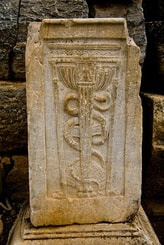

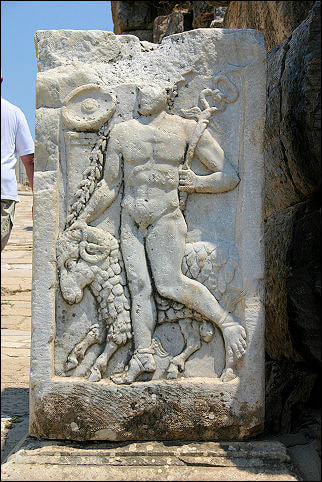

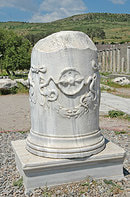
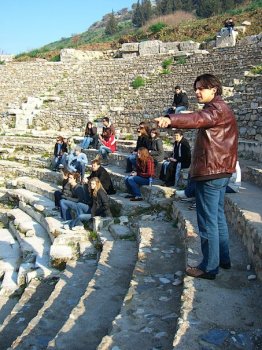
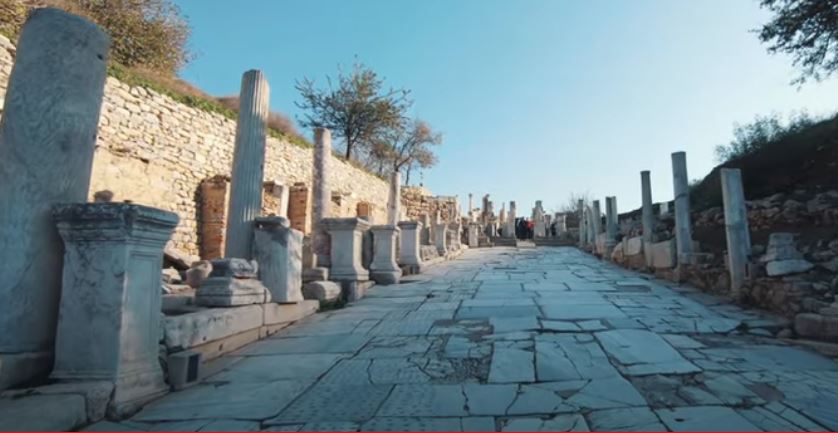
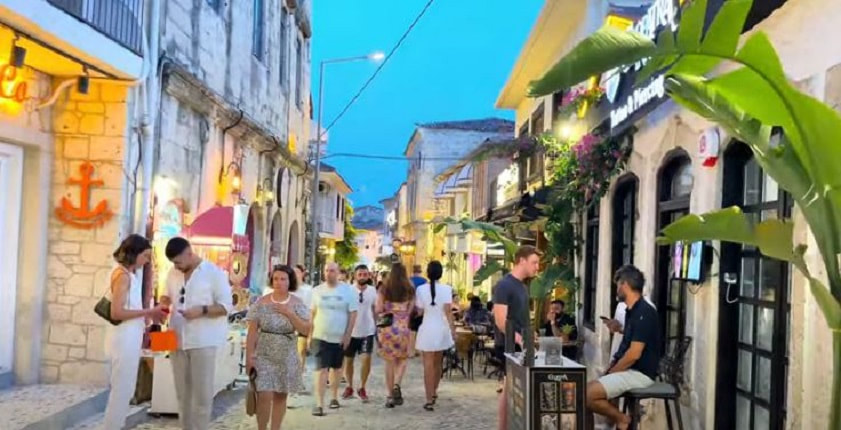
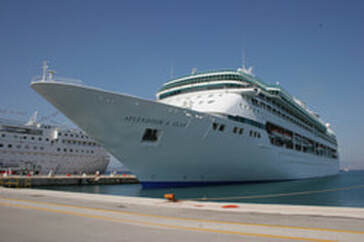
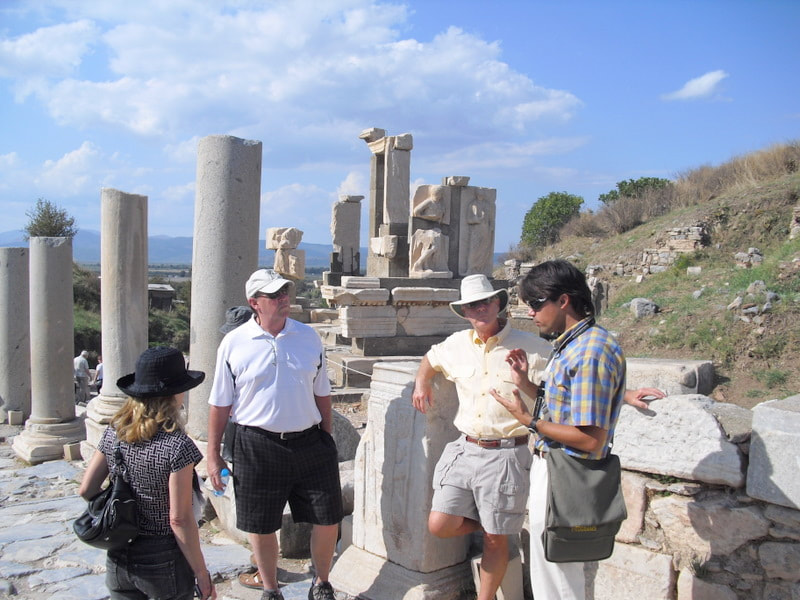
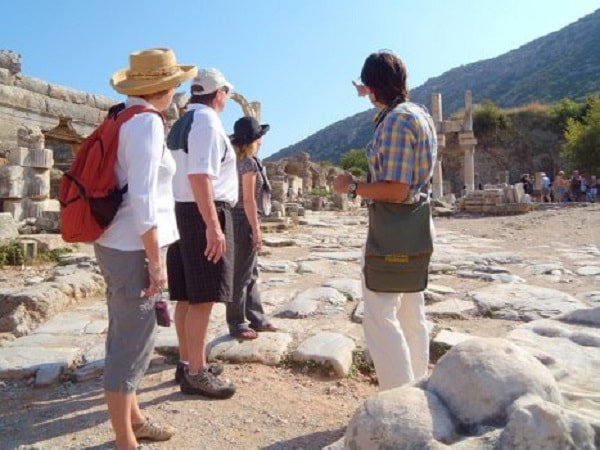



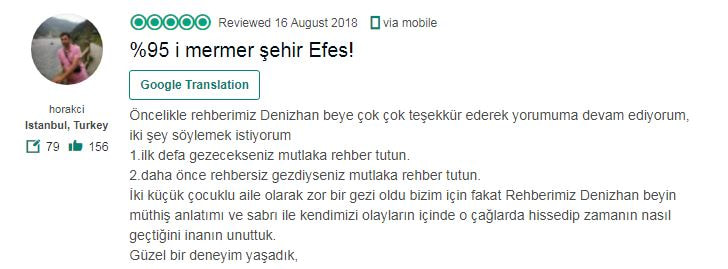
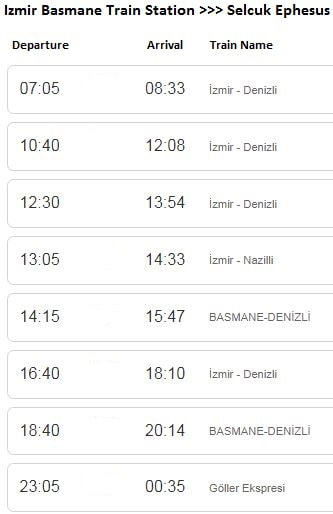
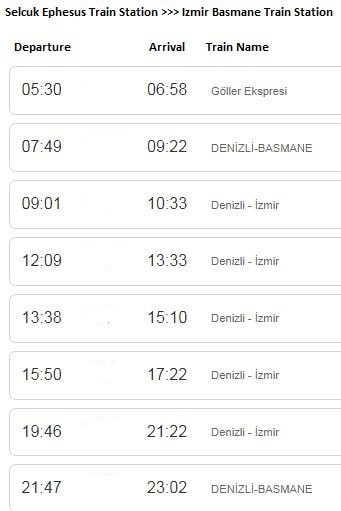
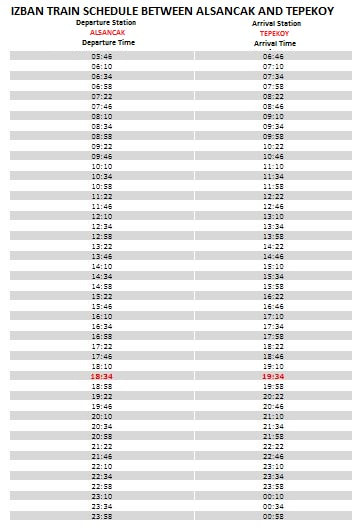
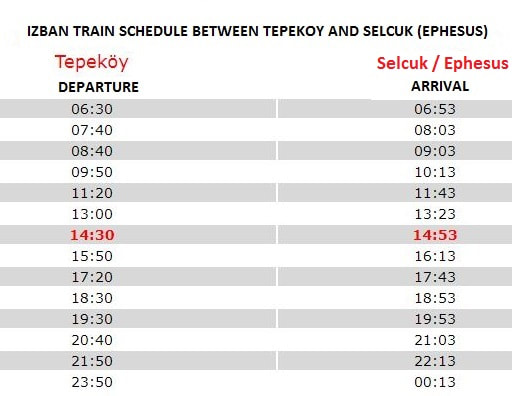
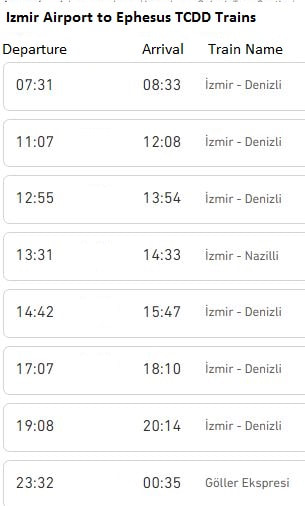
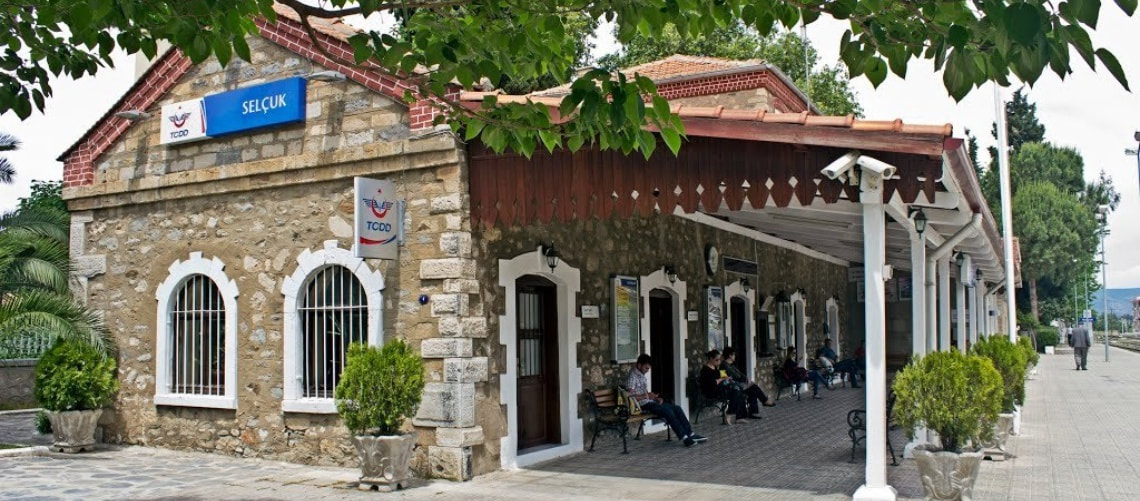
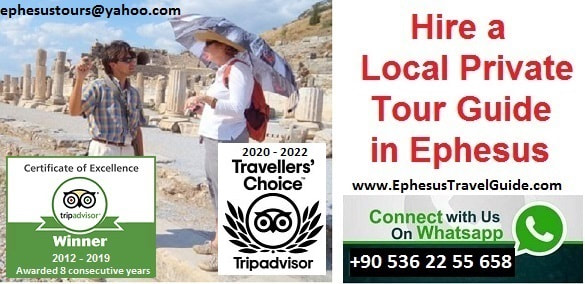



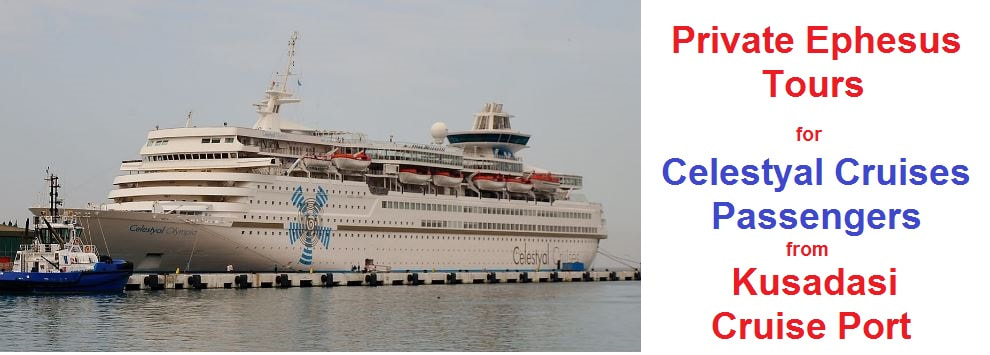
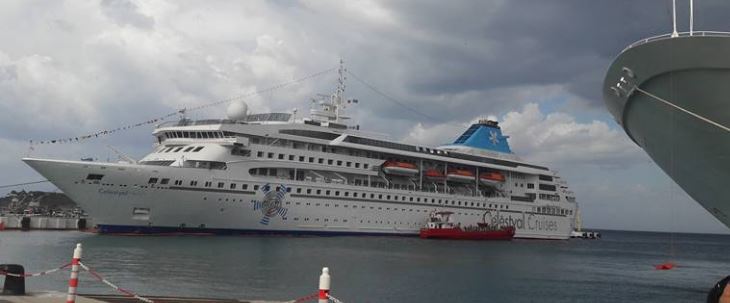
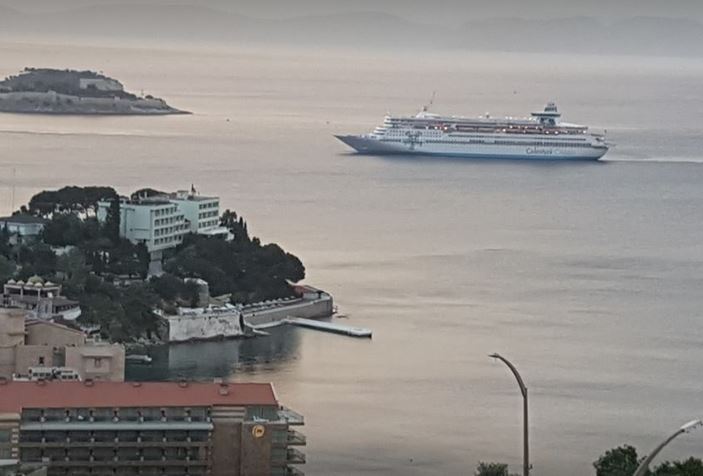
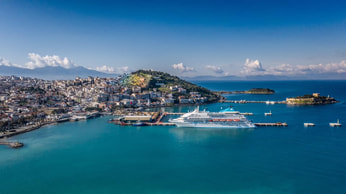
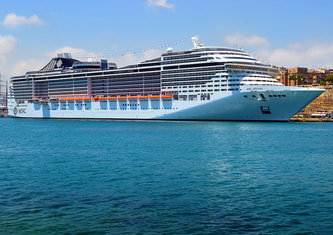
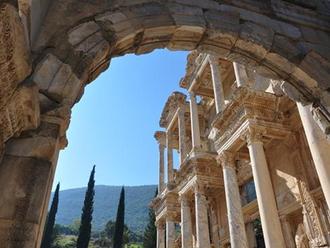
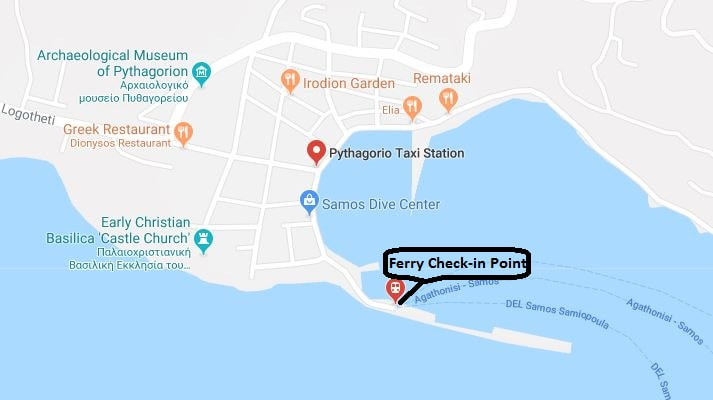
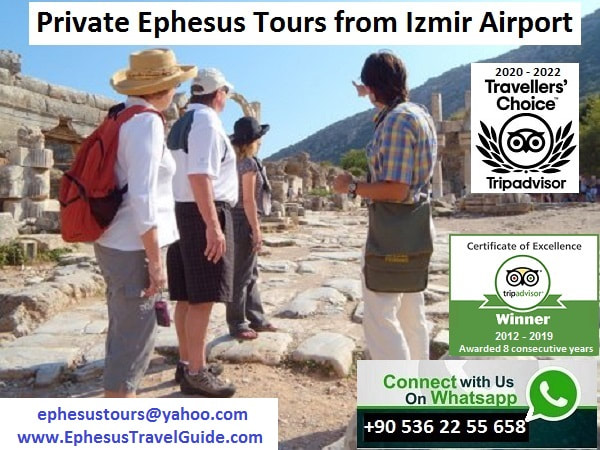
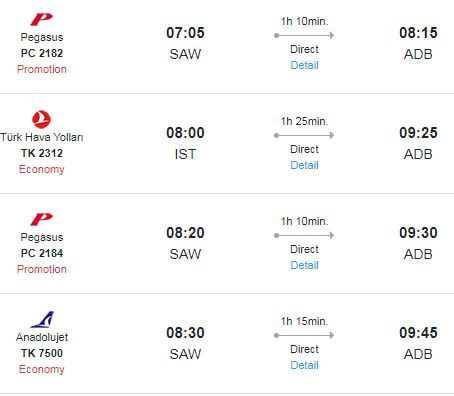
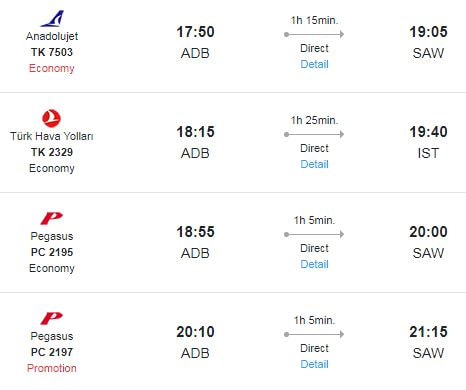

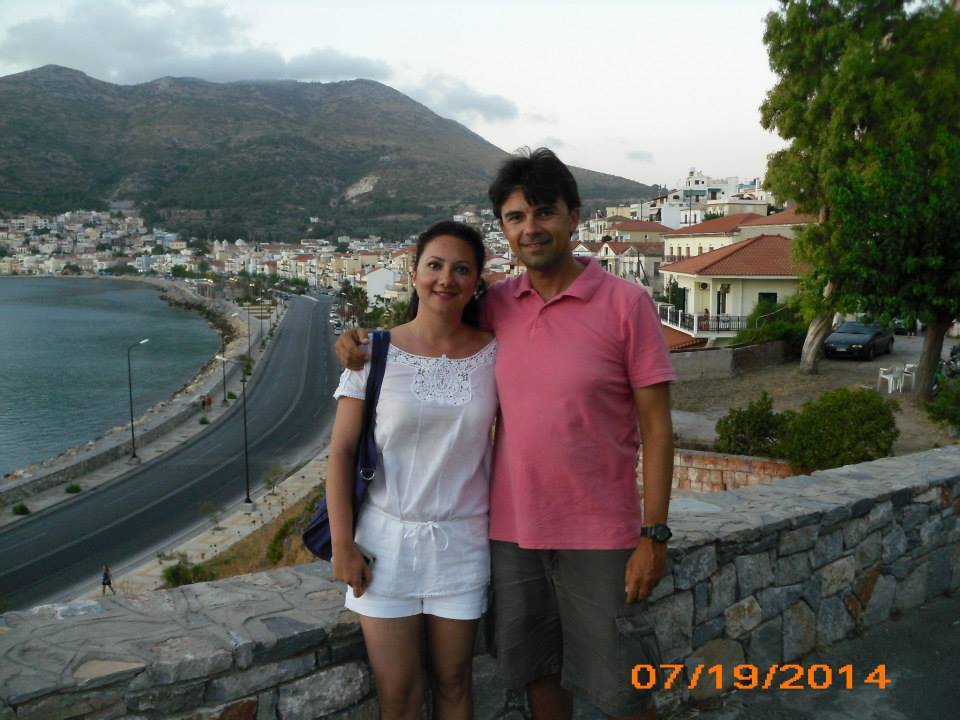
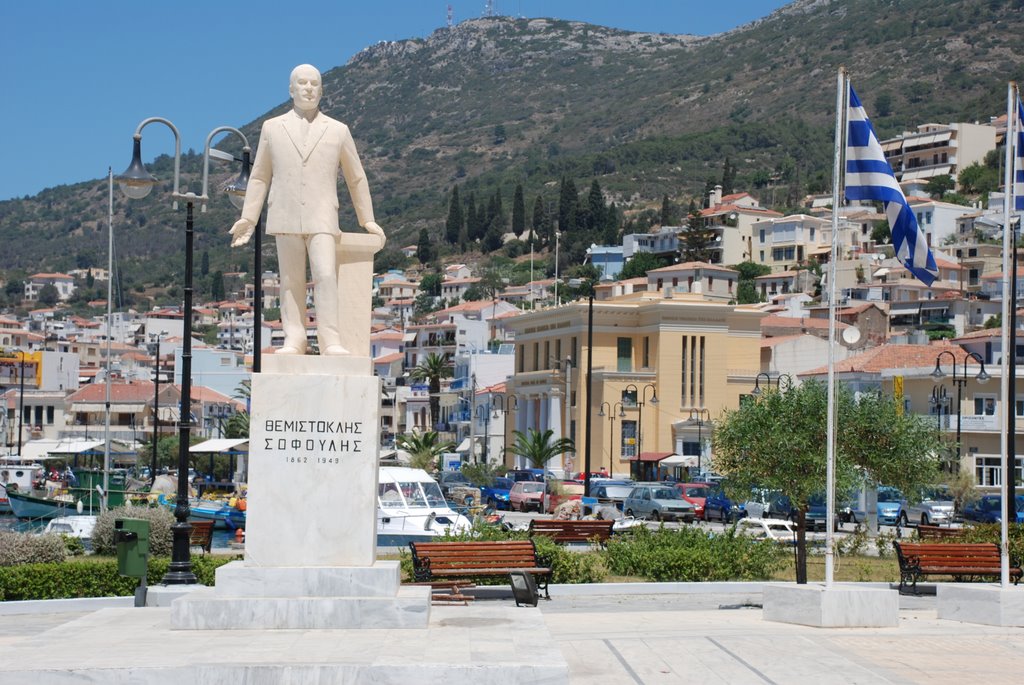
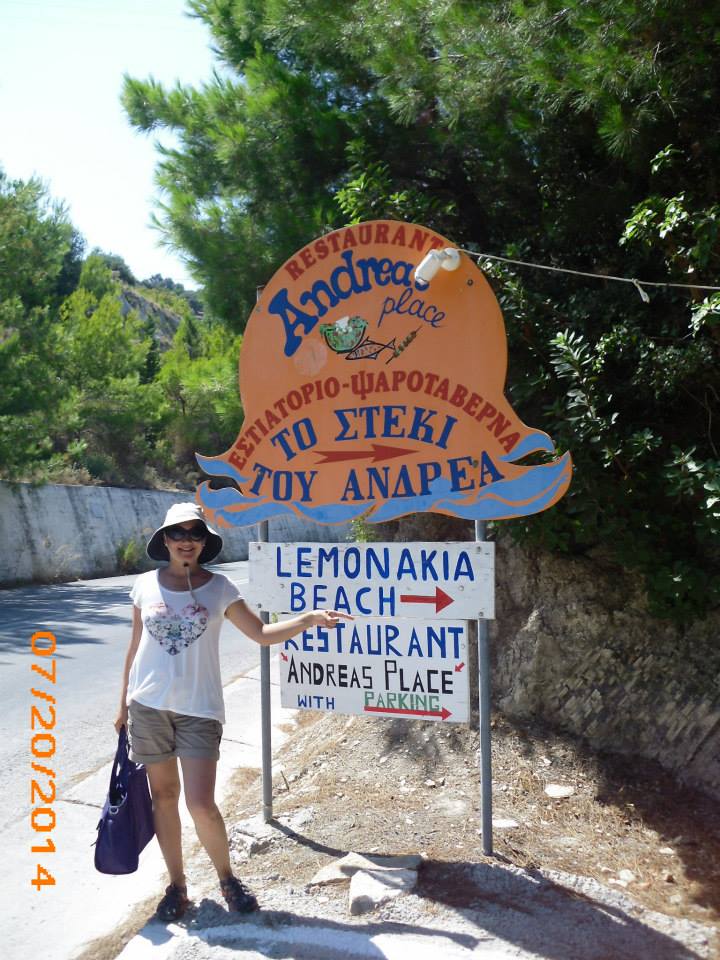
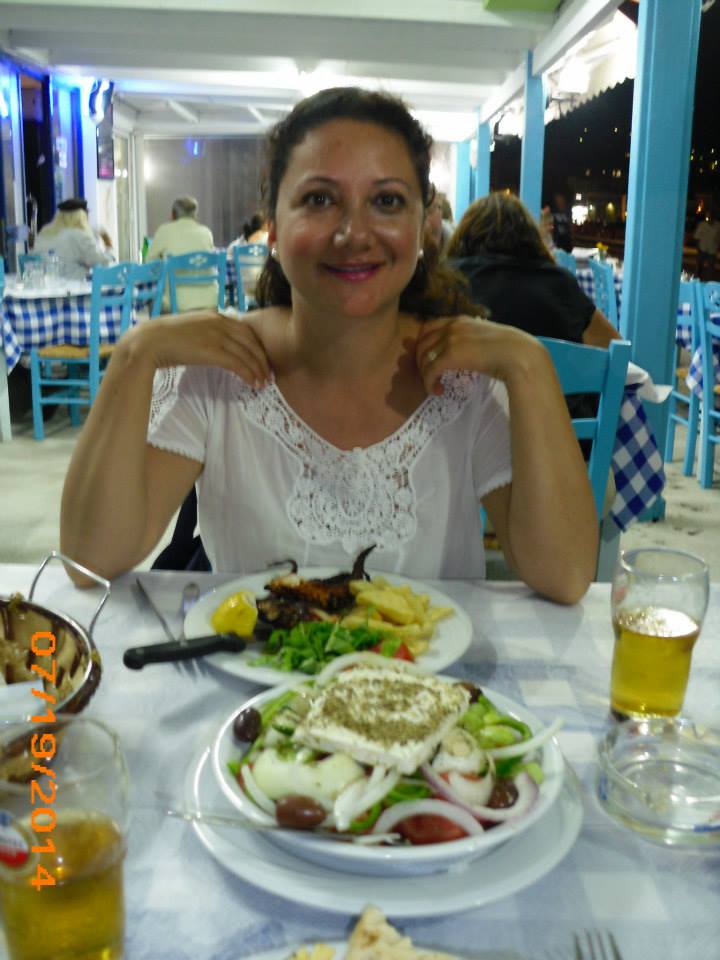
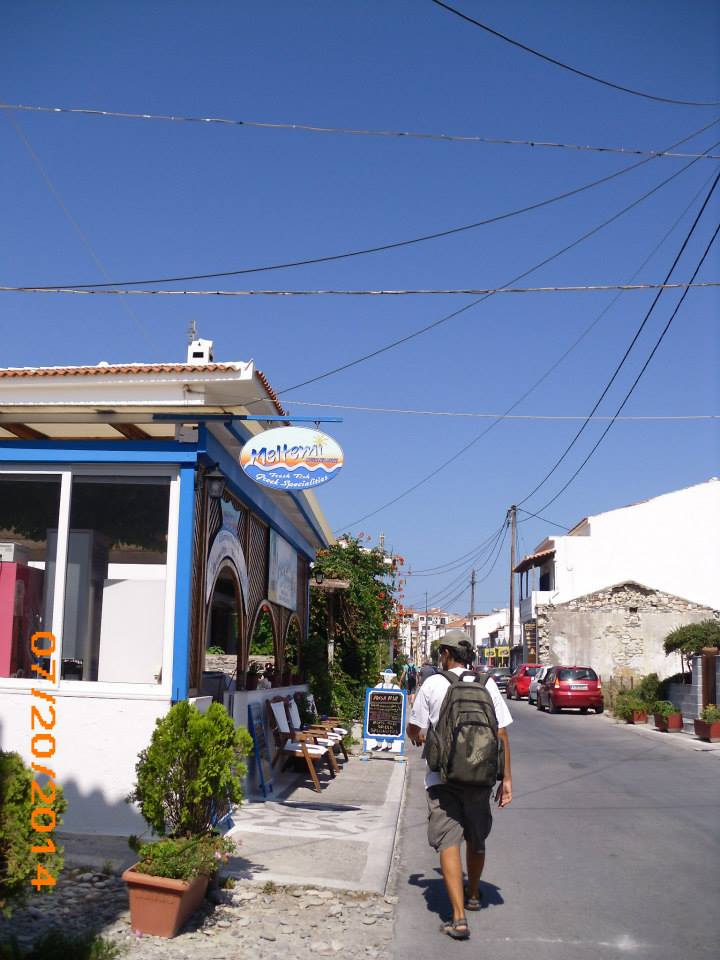
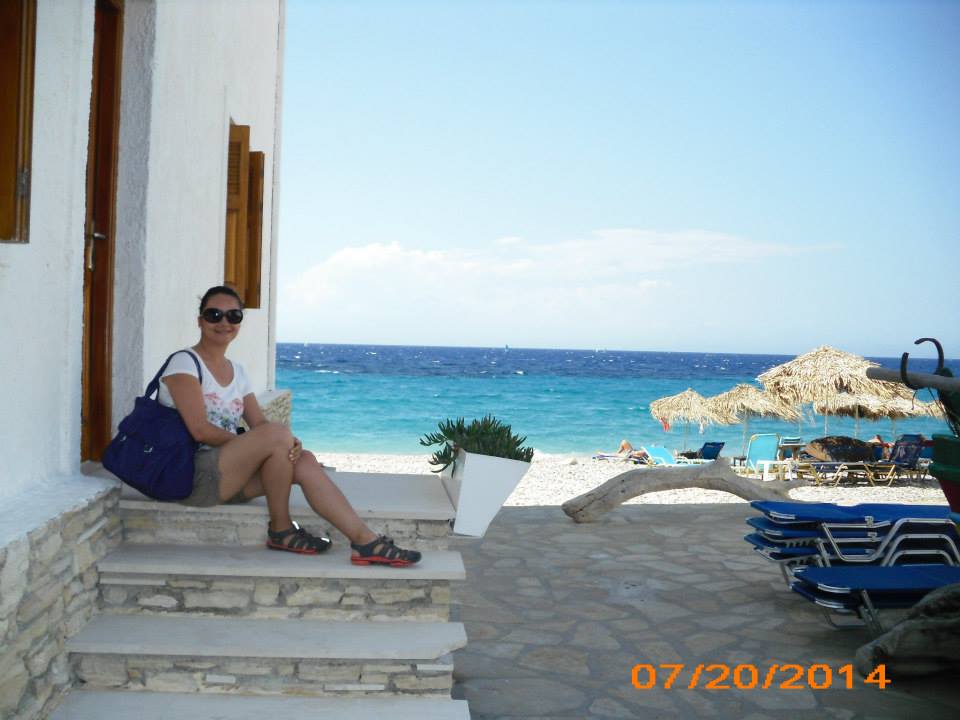


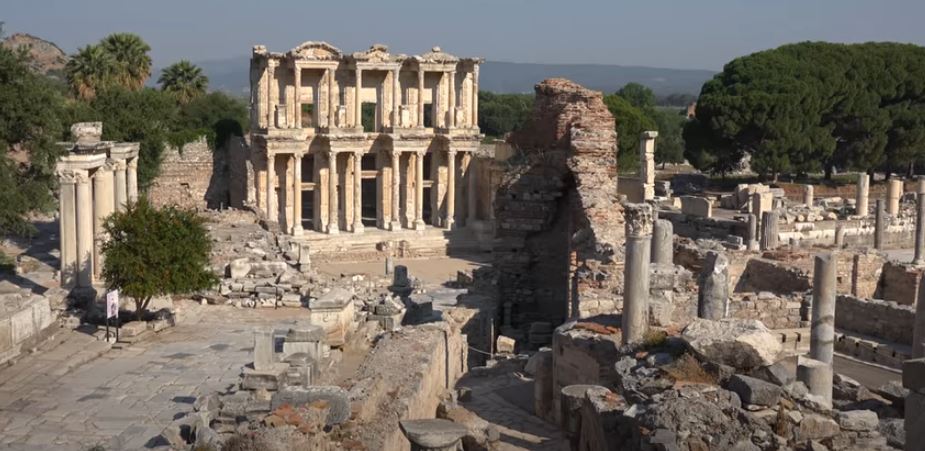




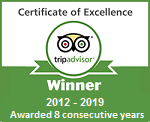

 RSS Feed
RSS Feed
